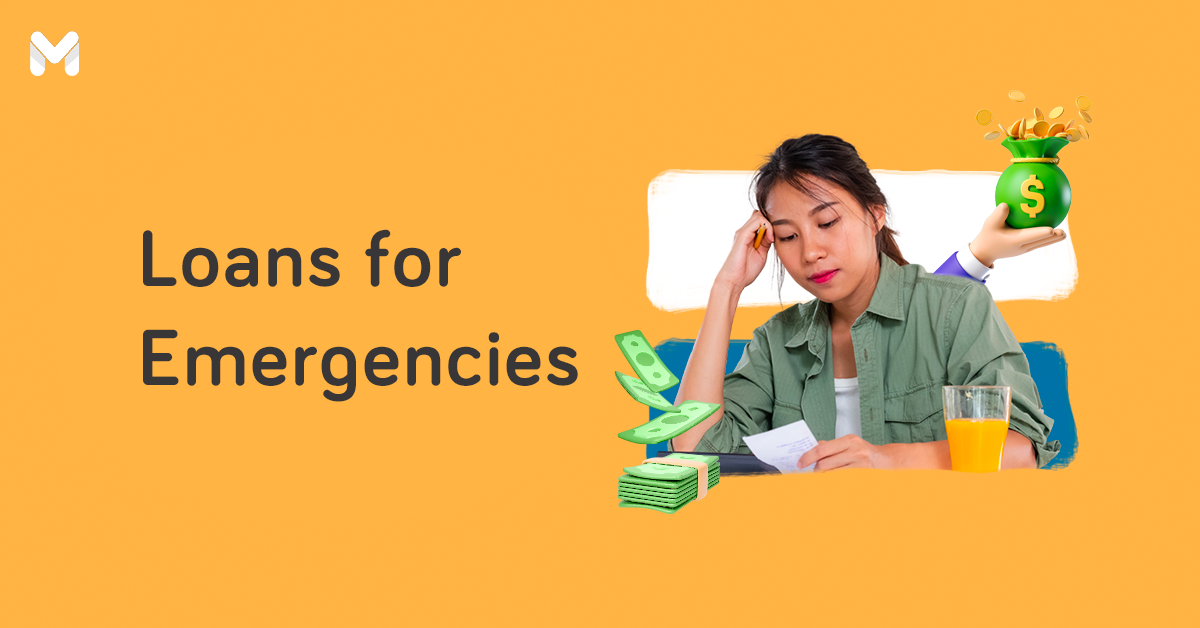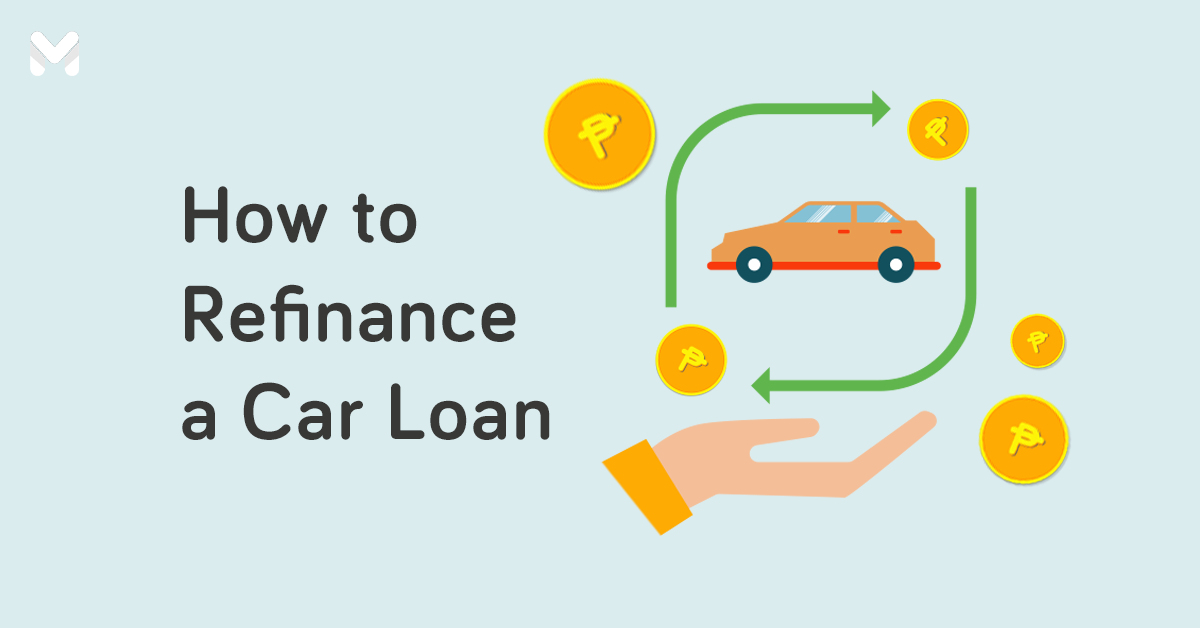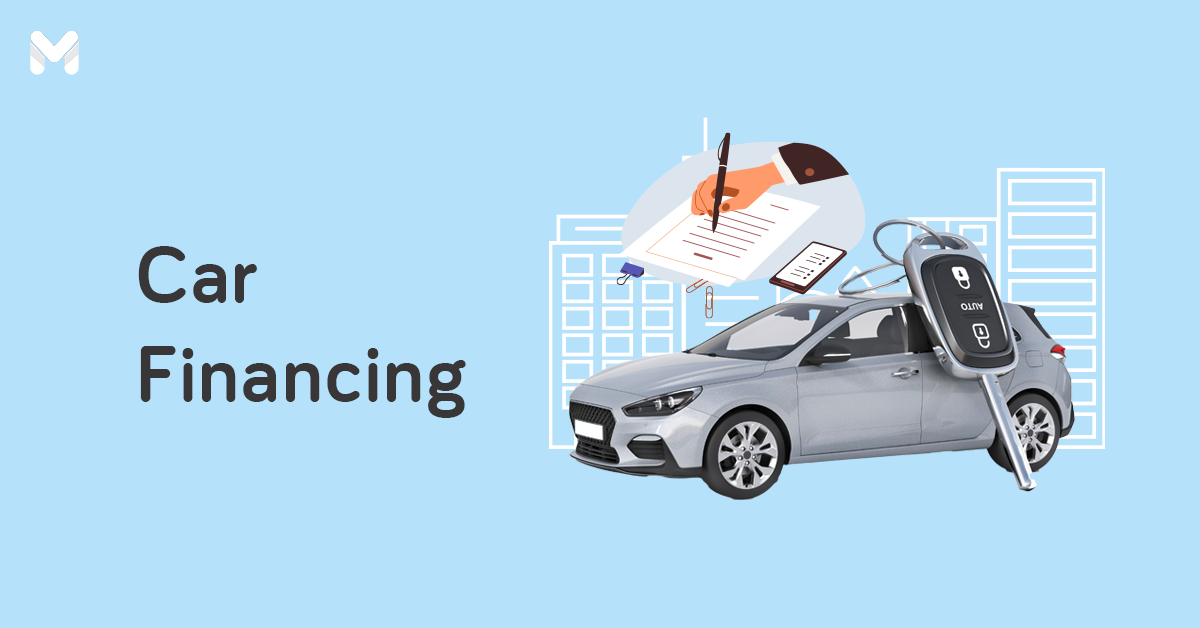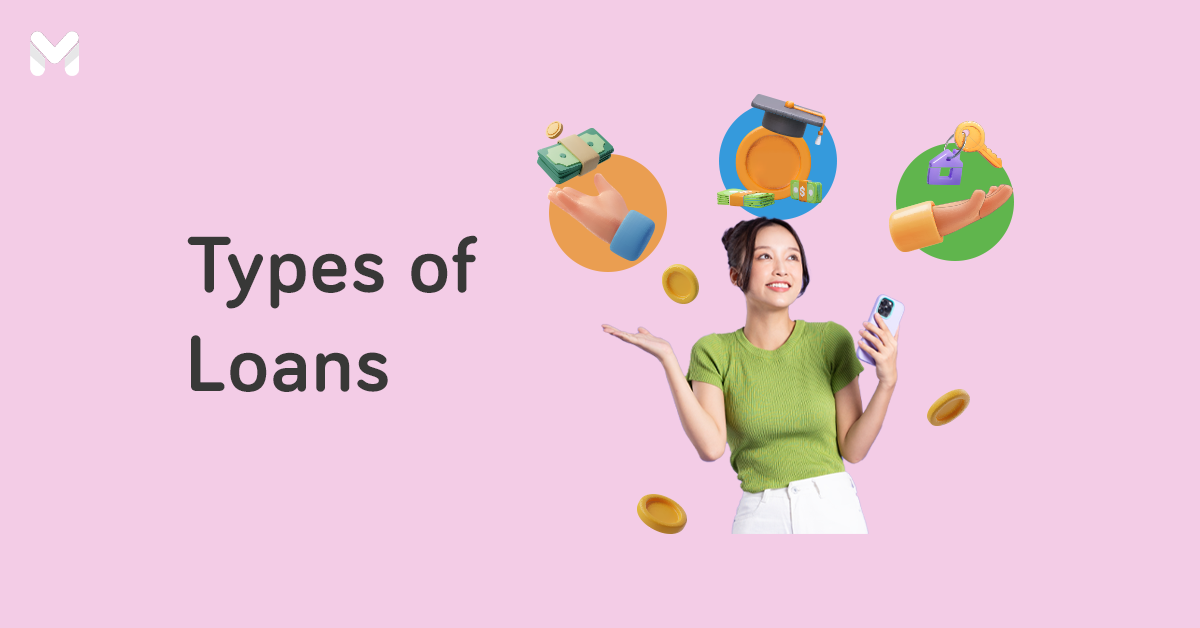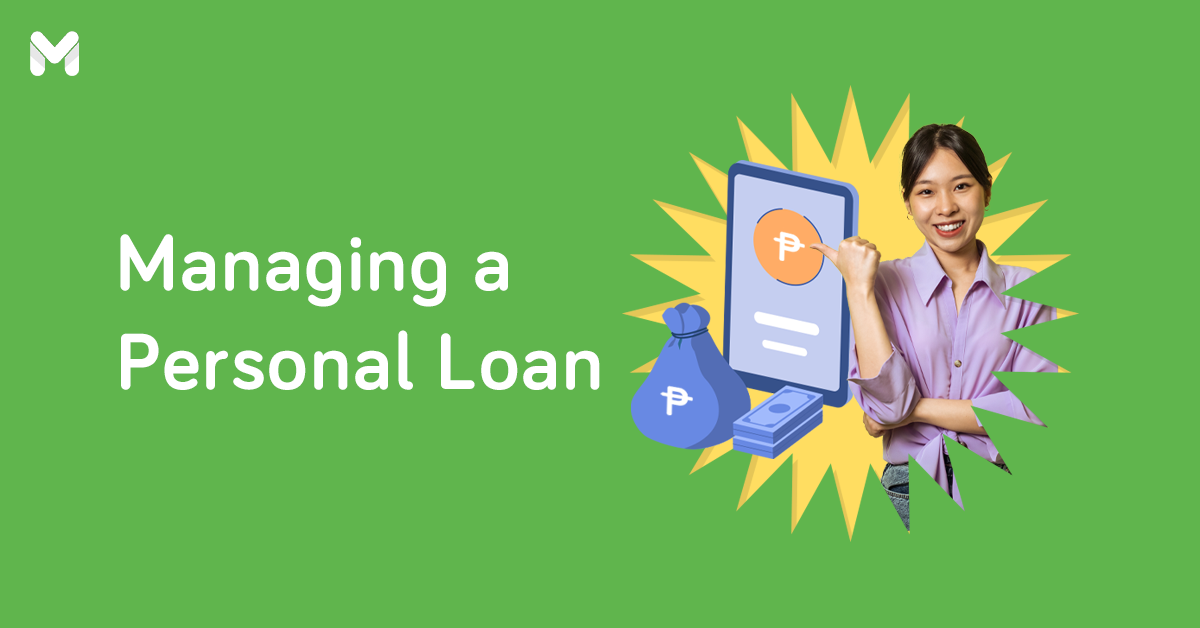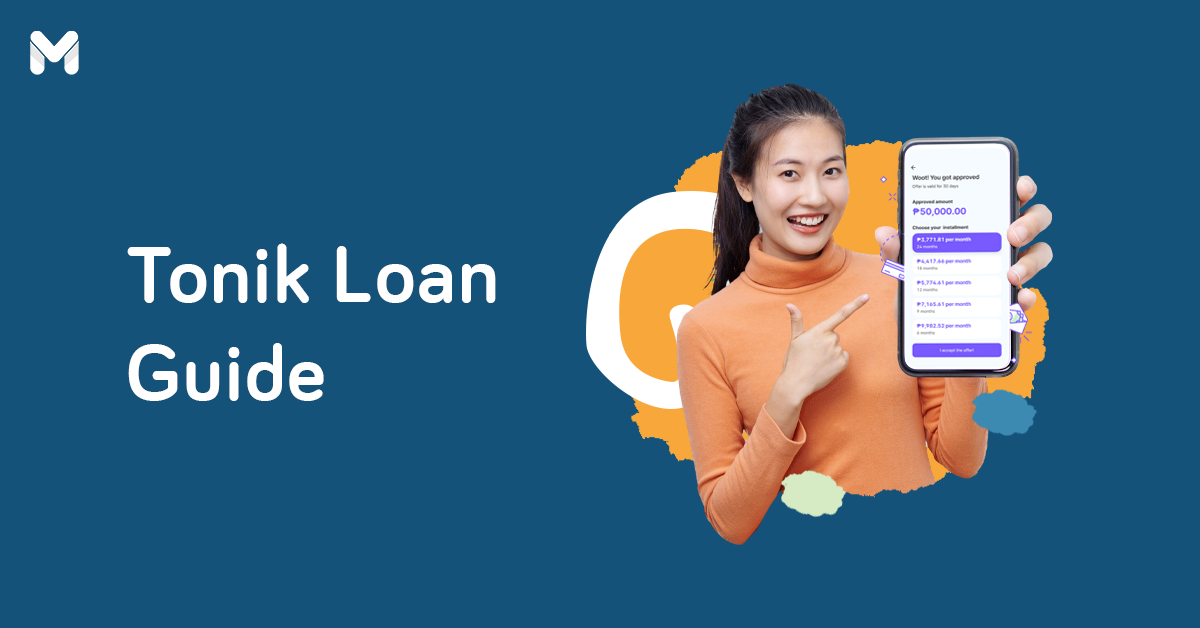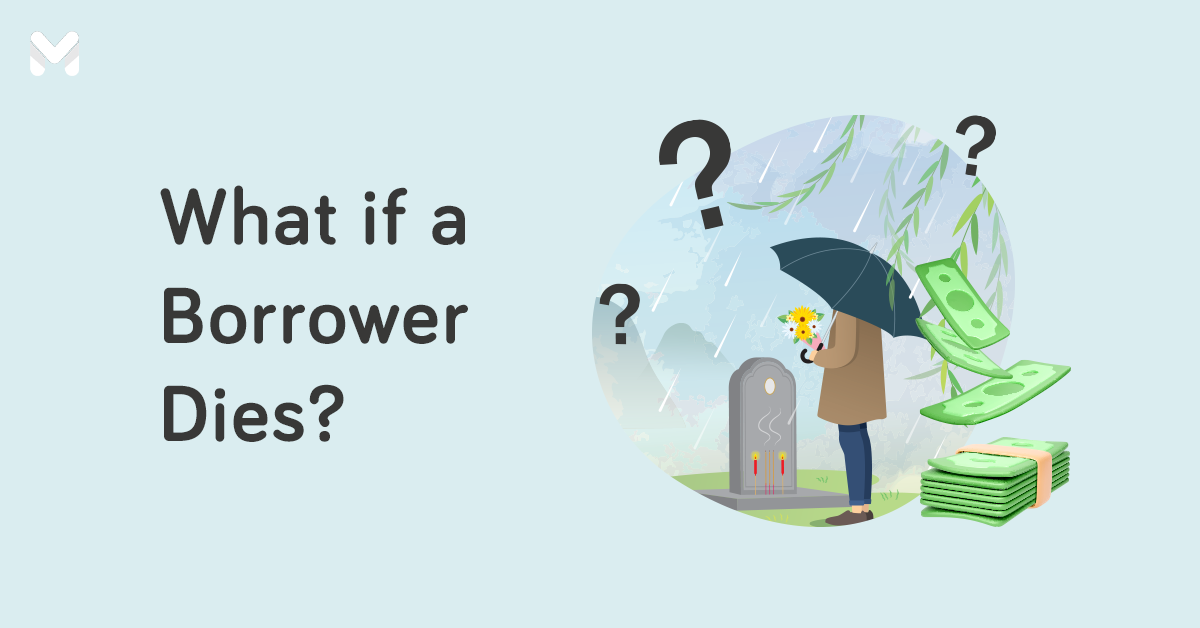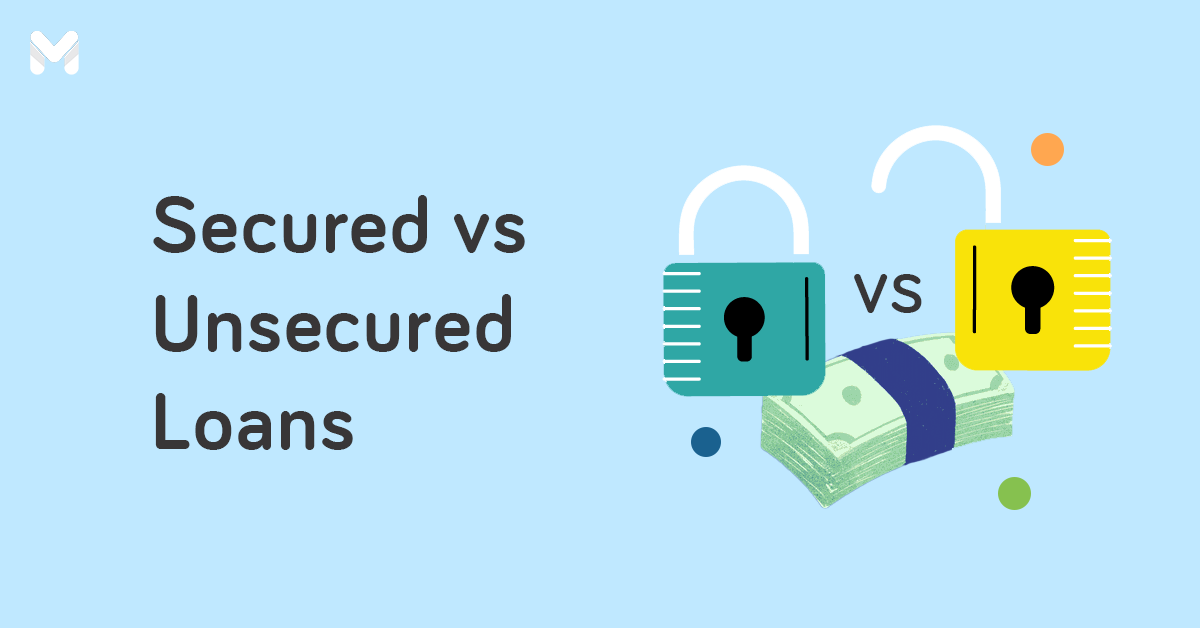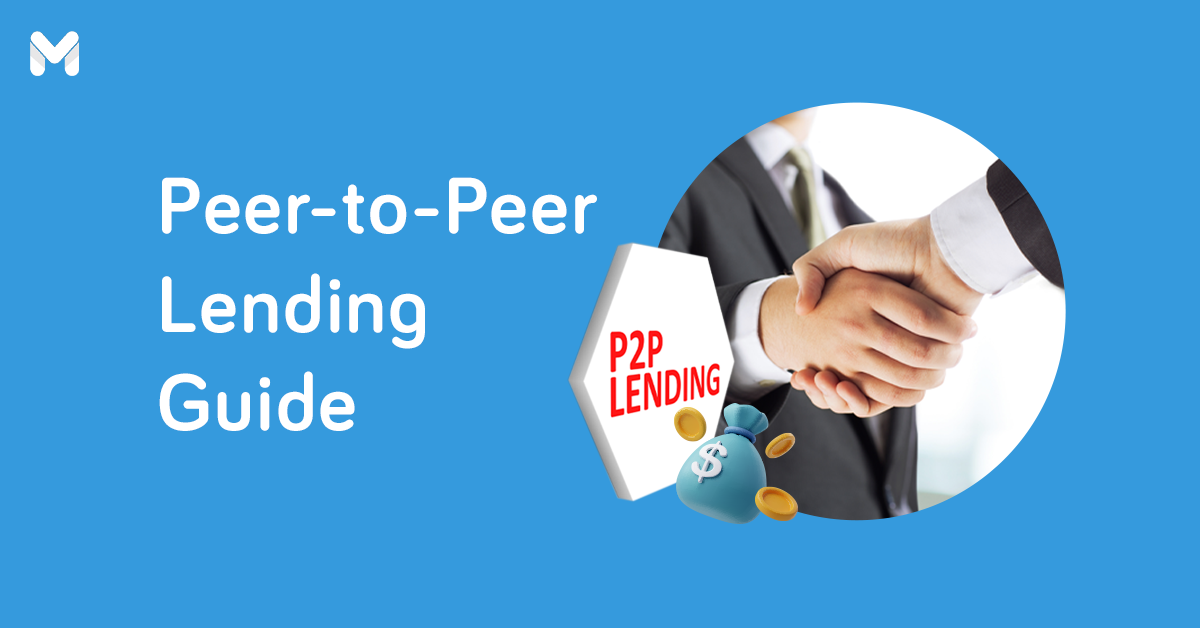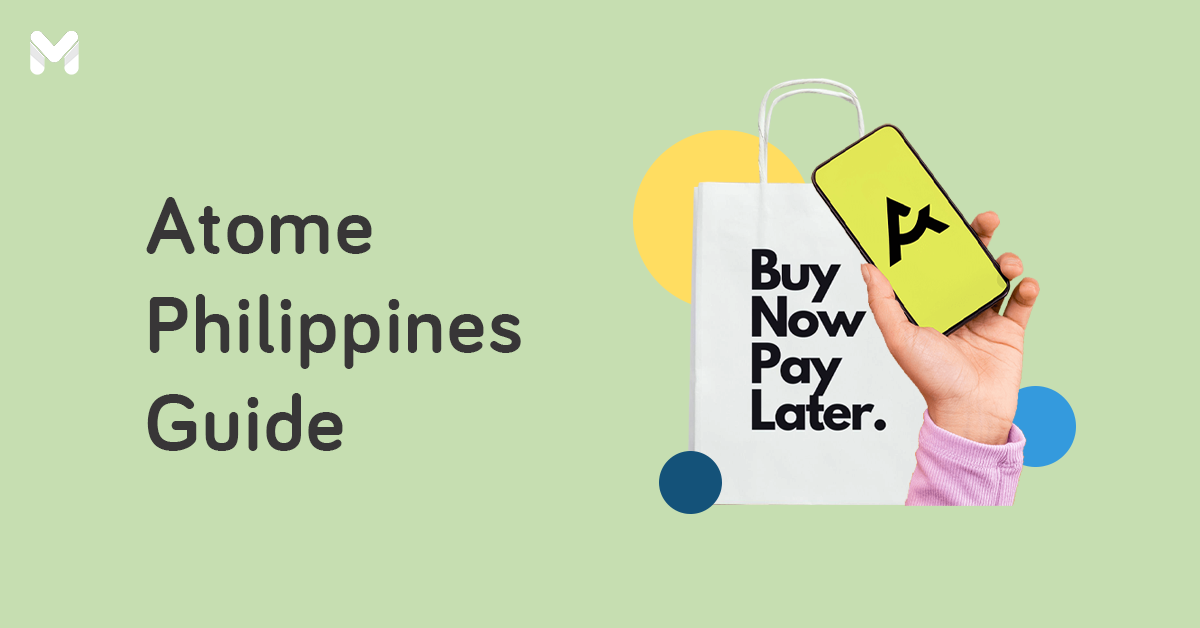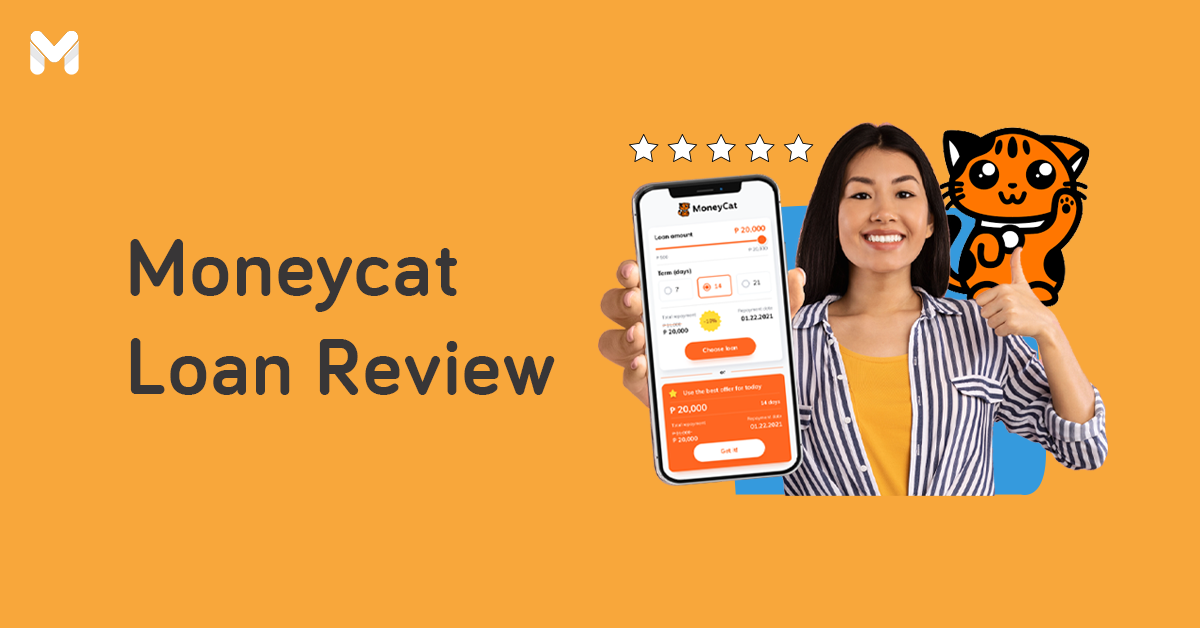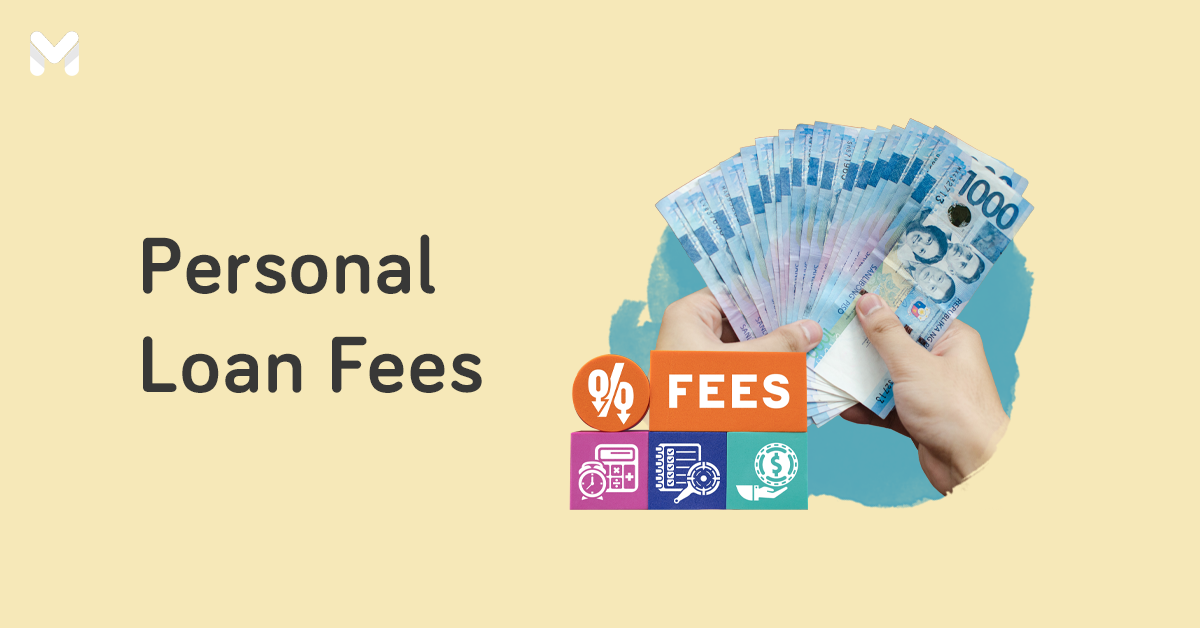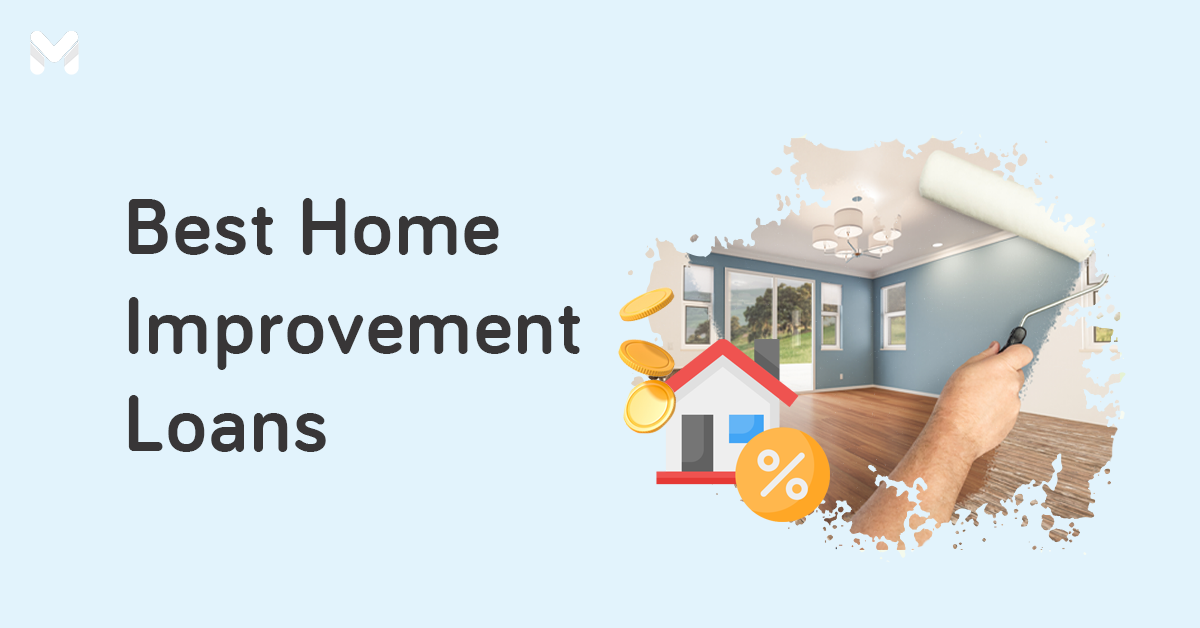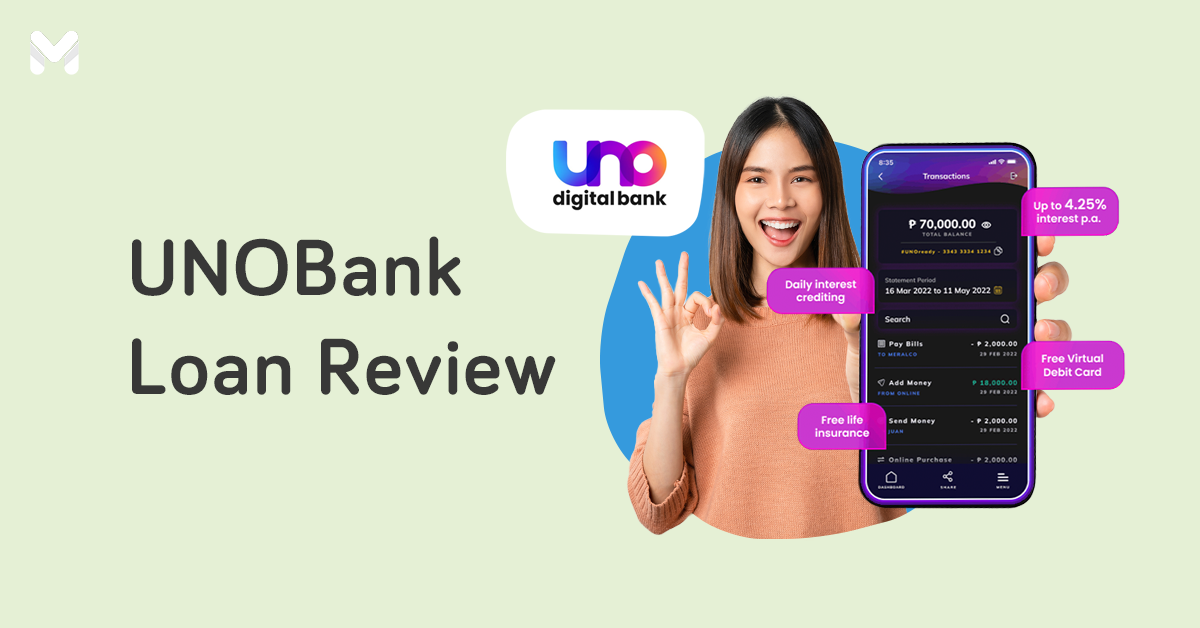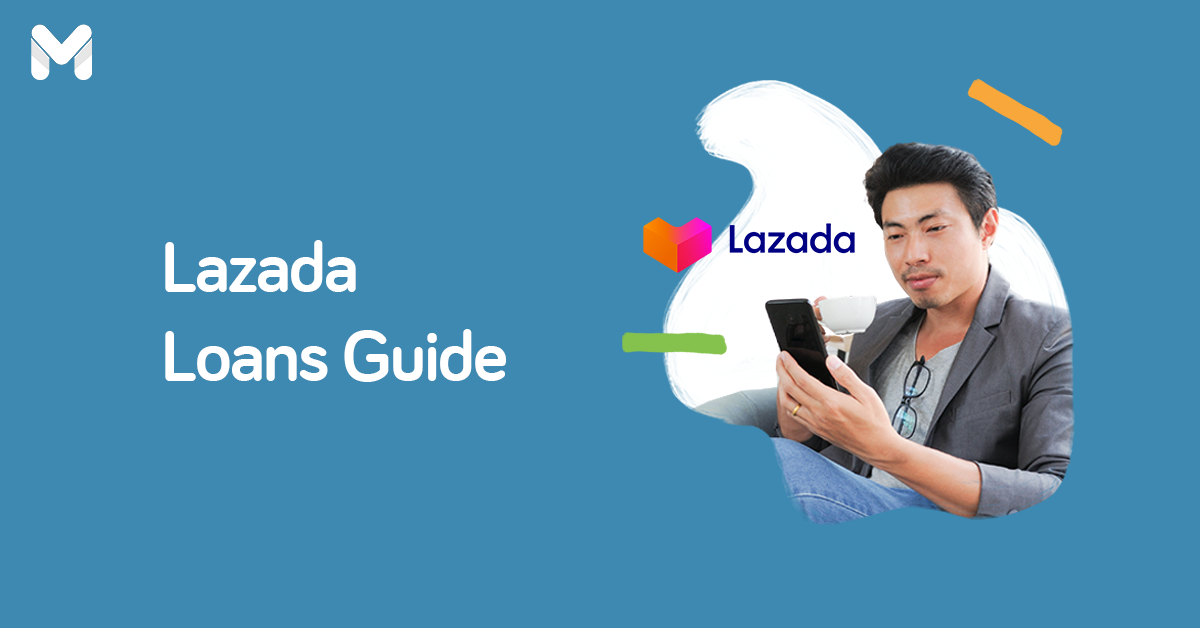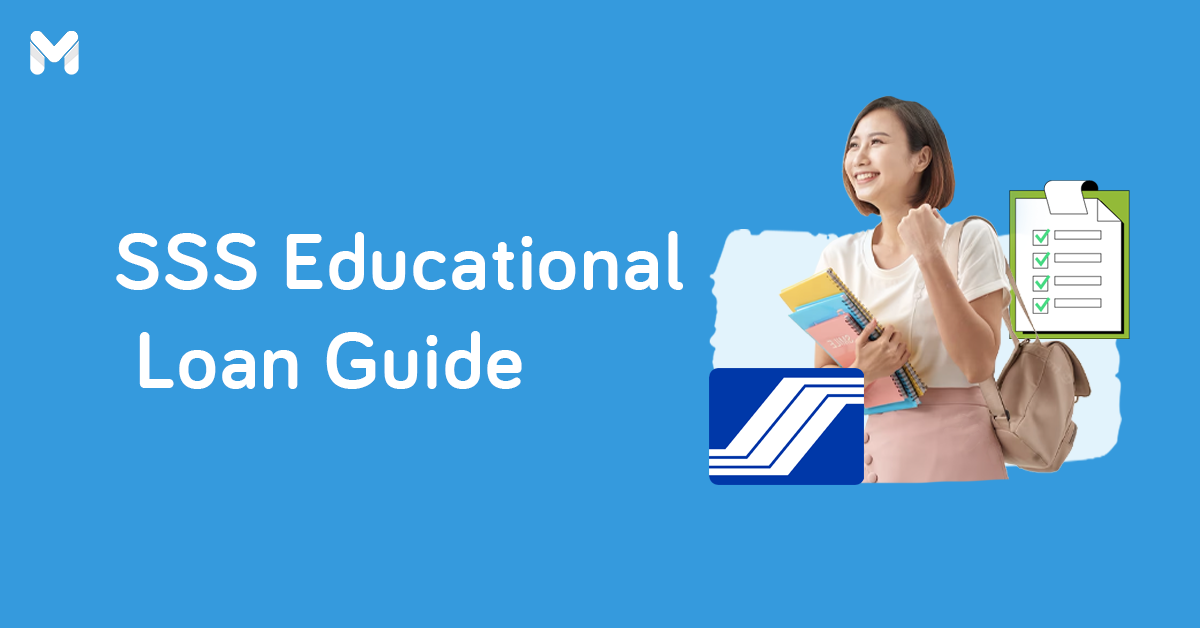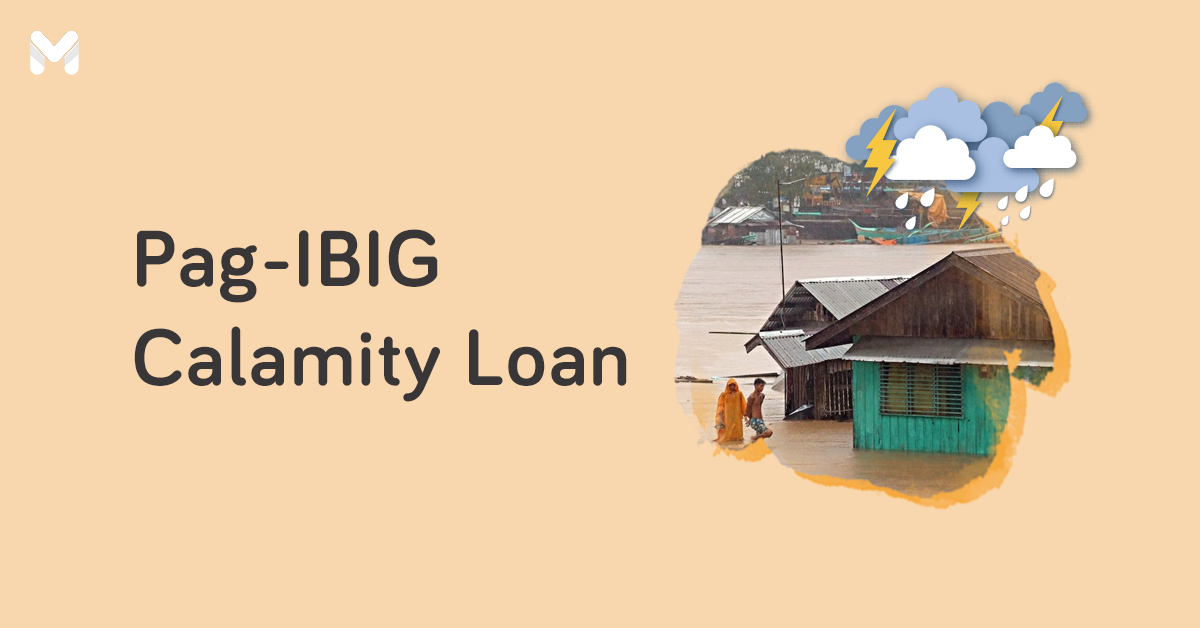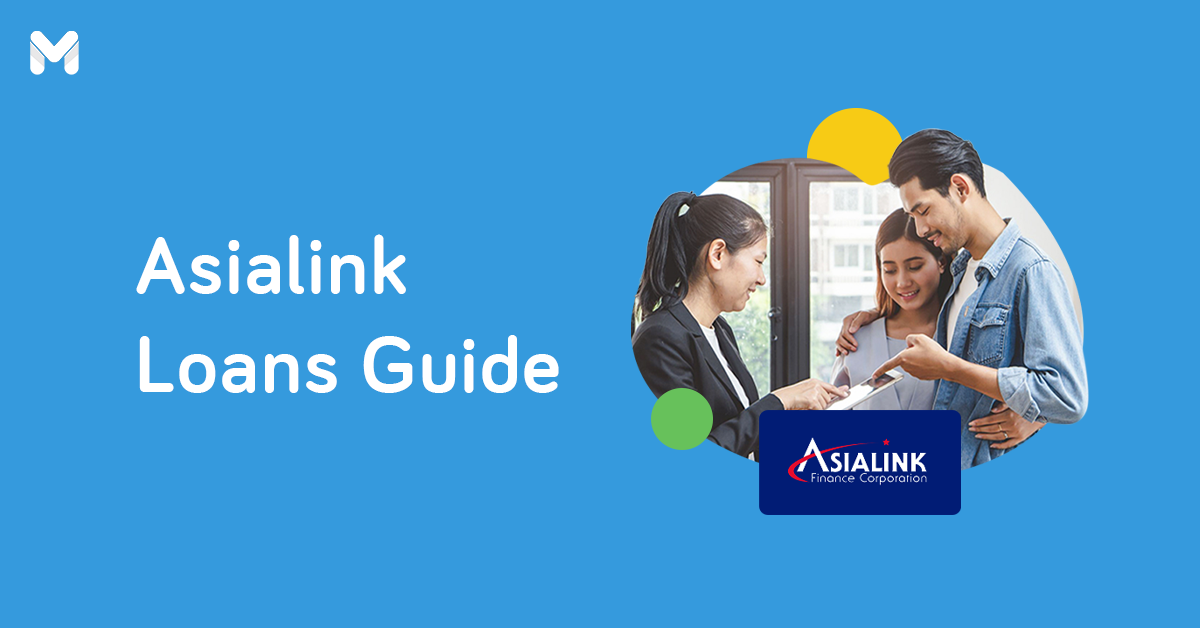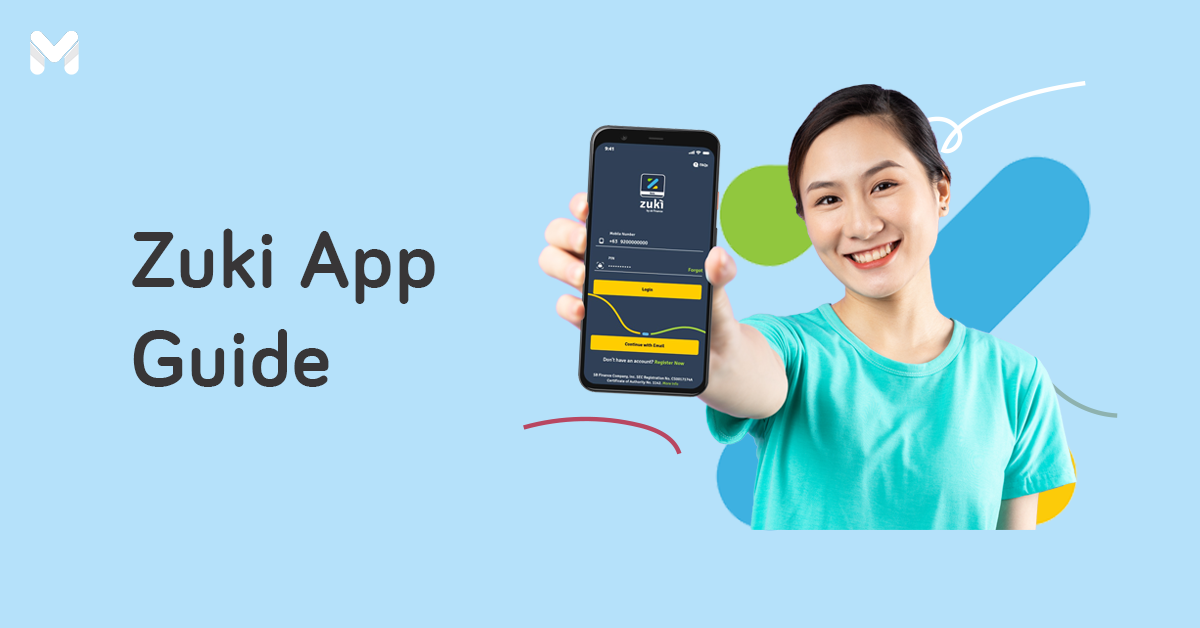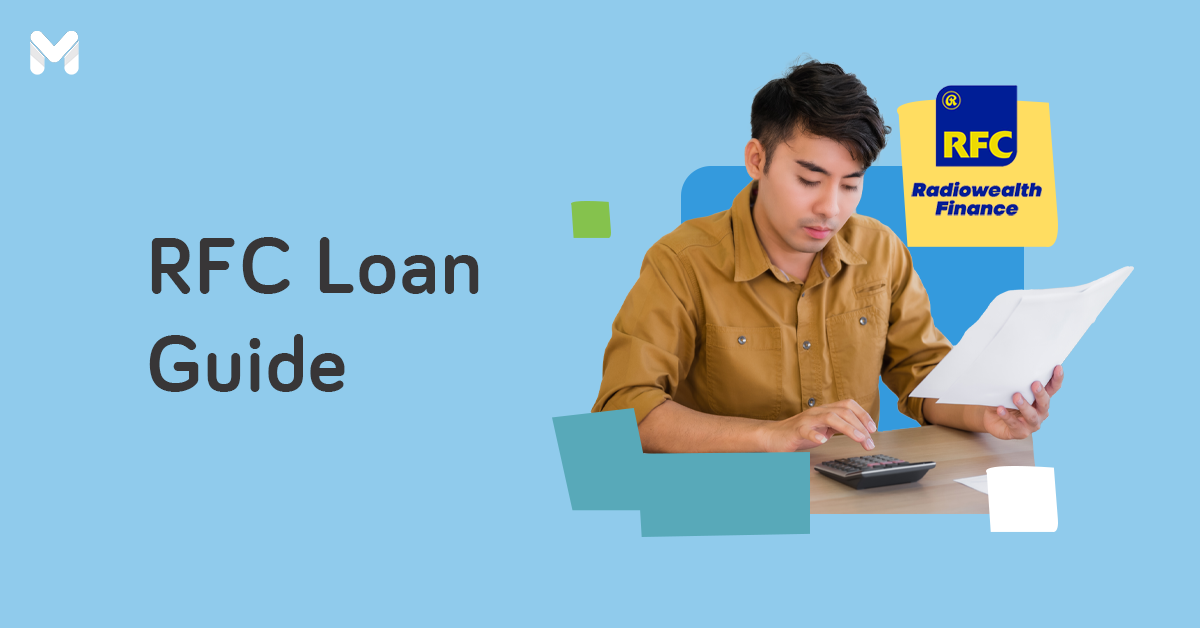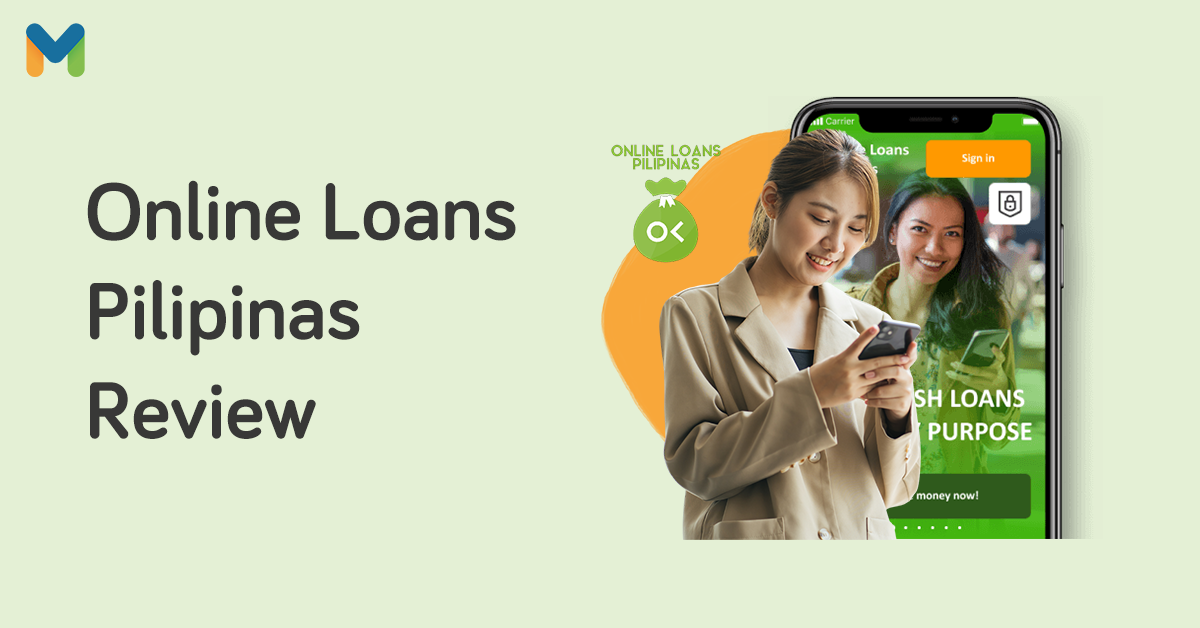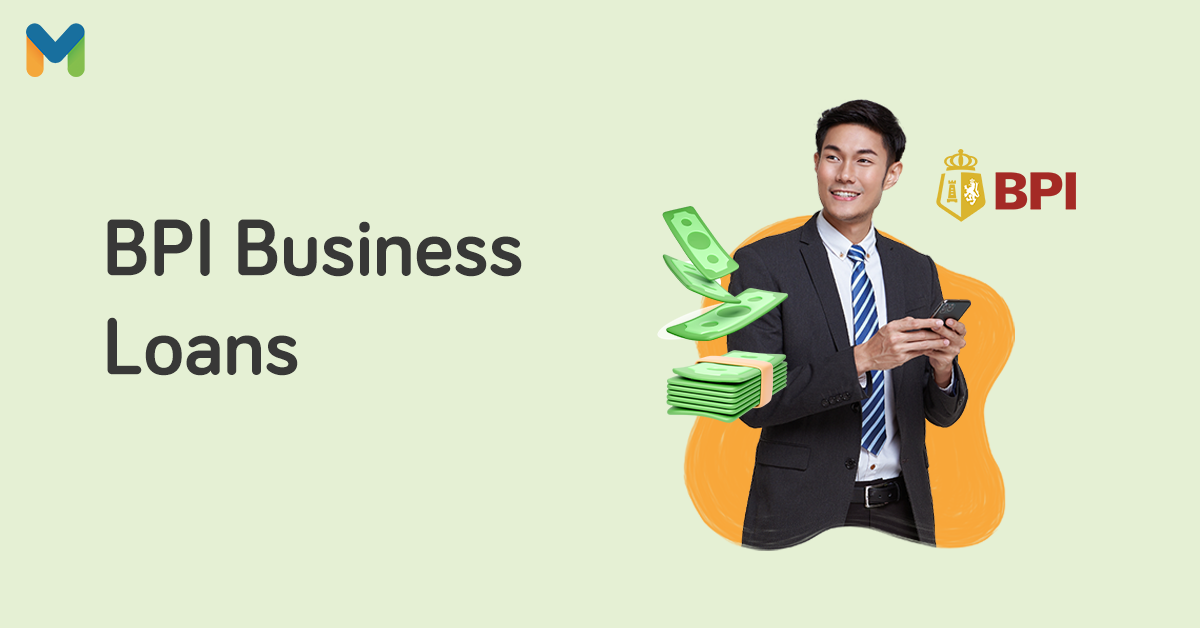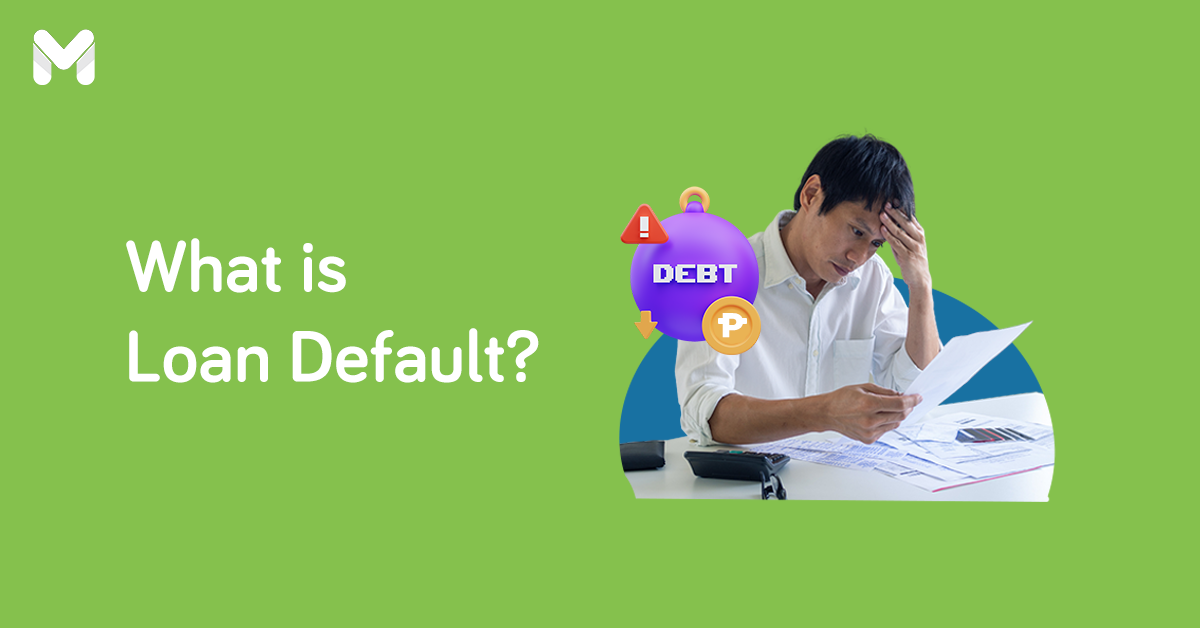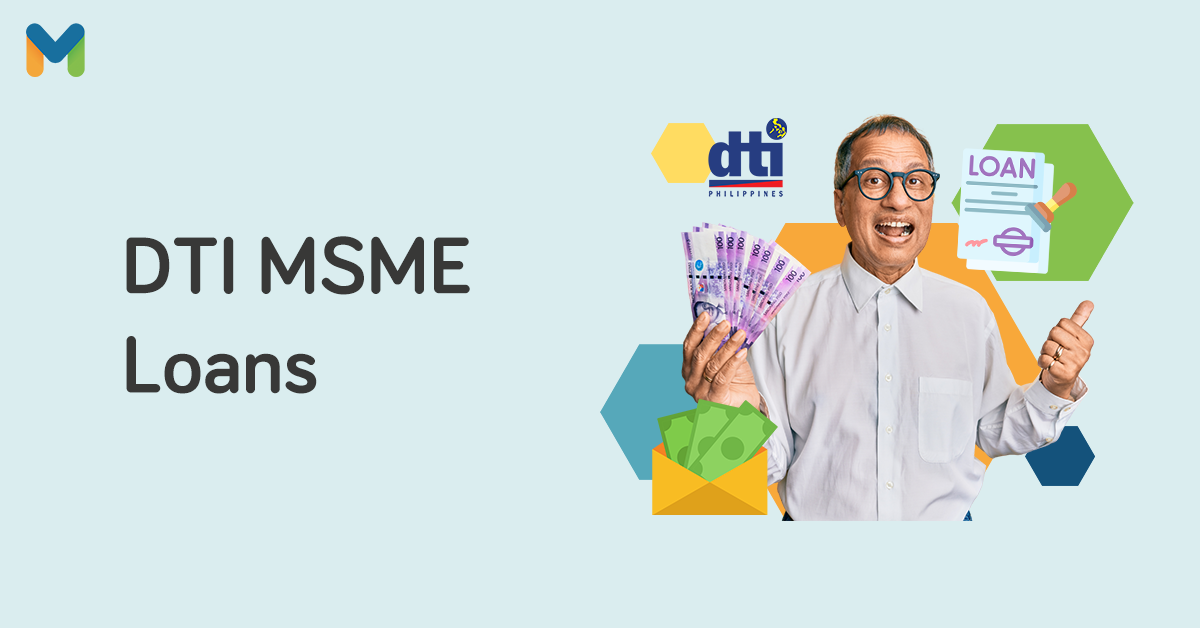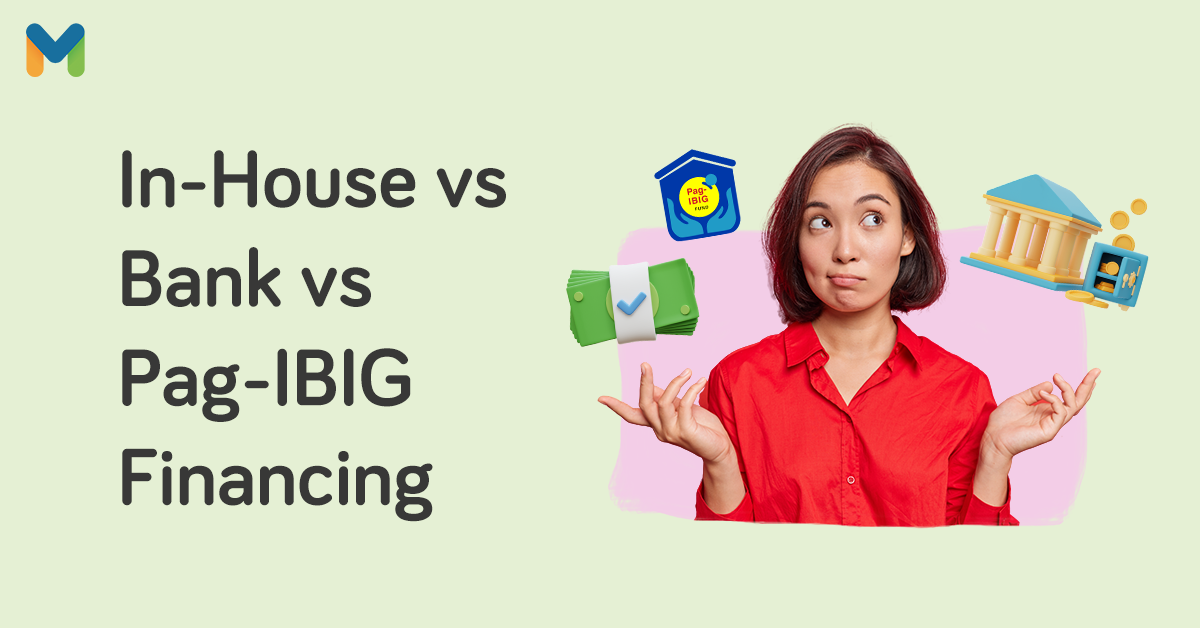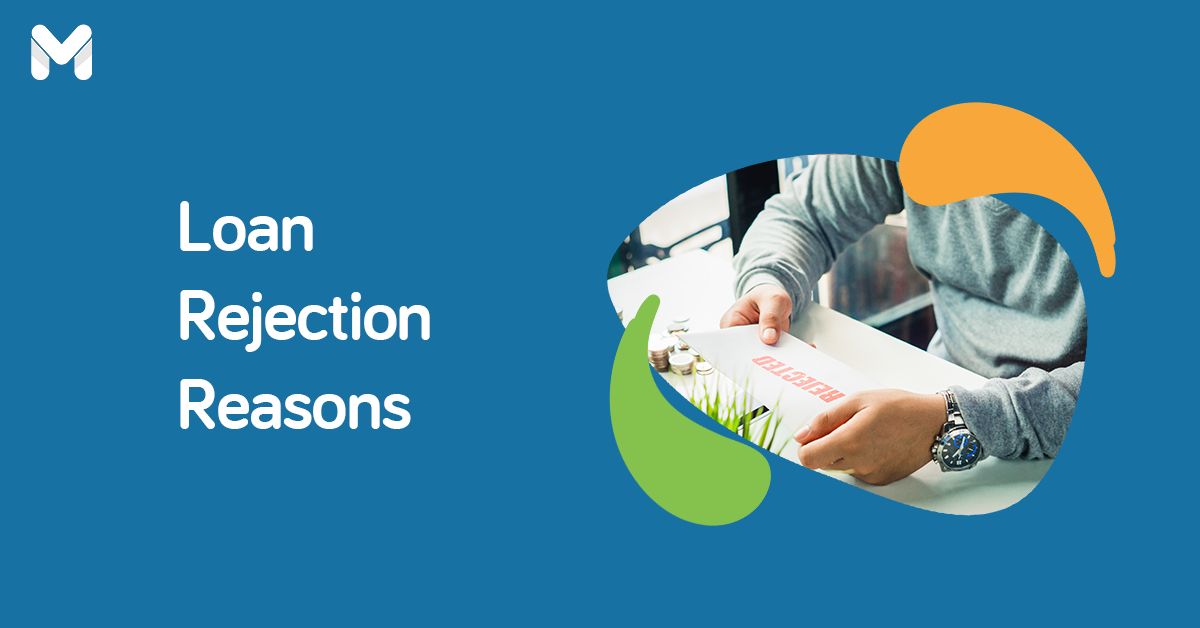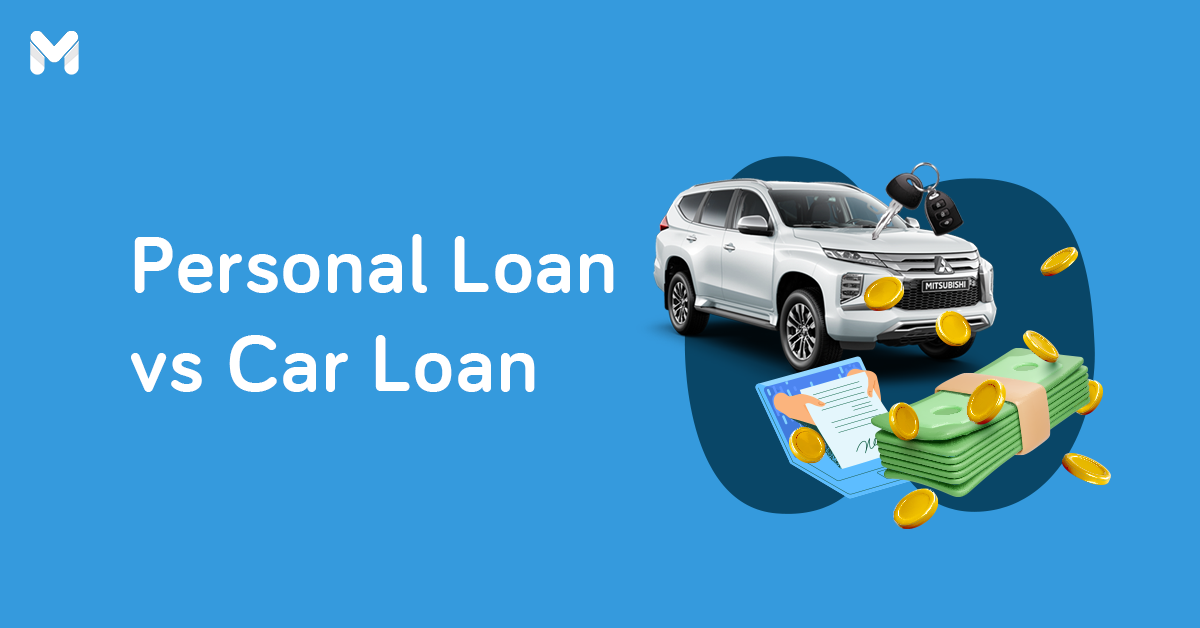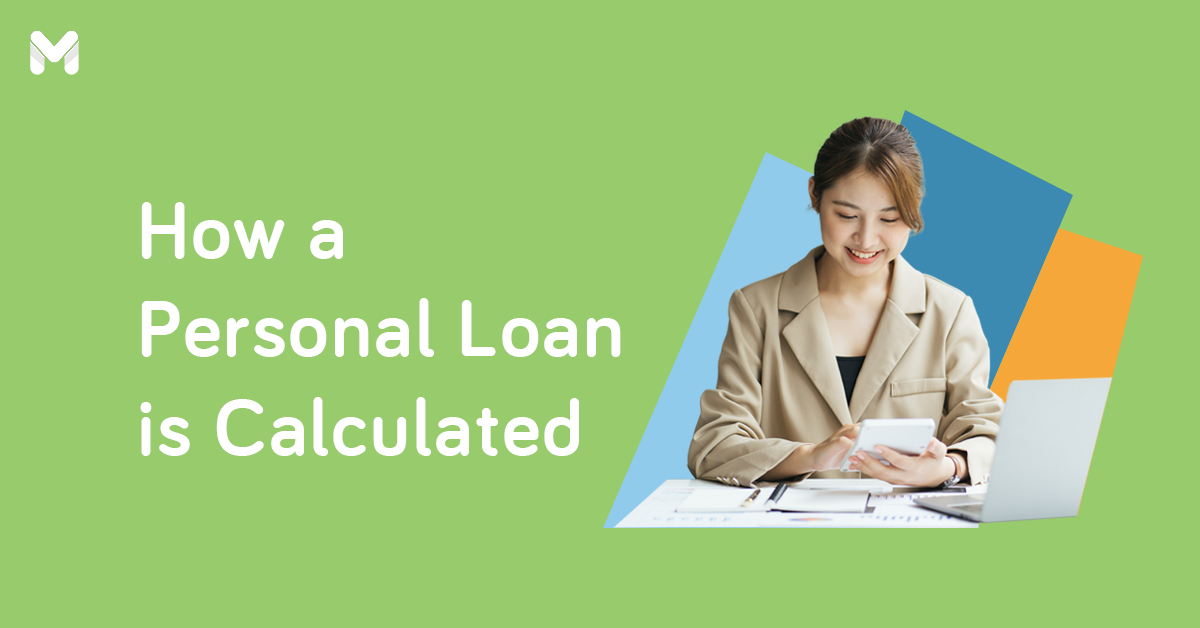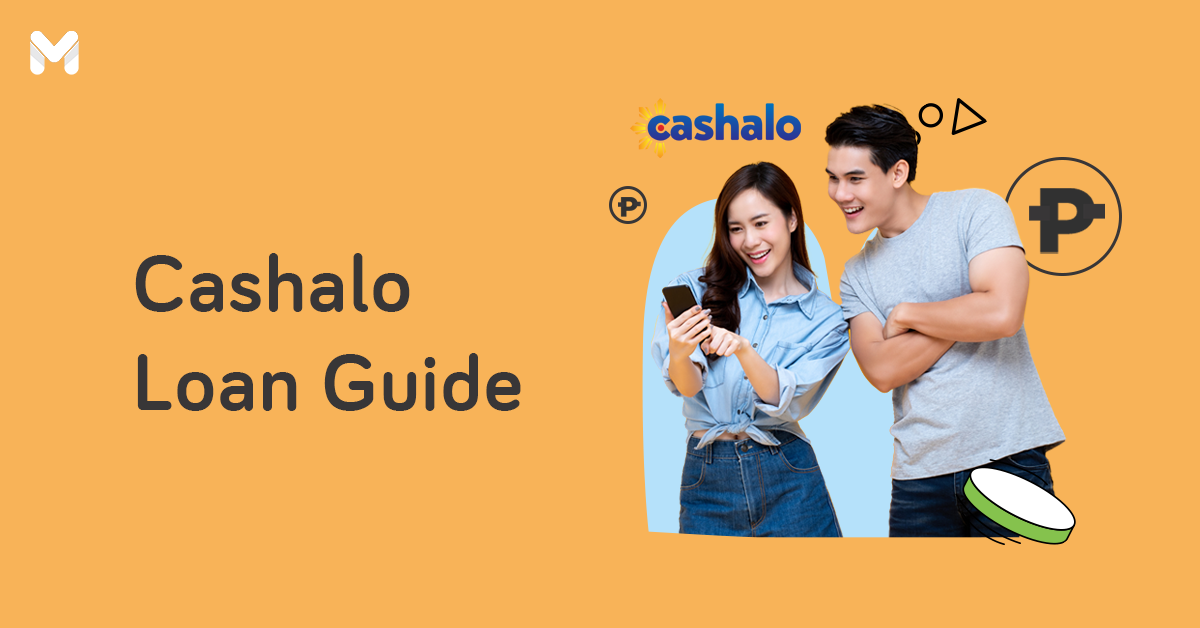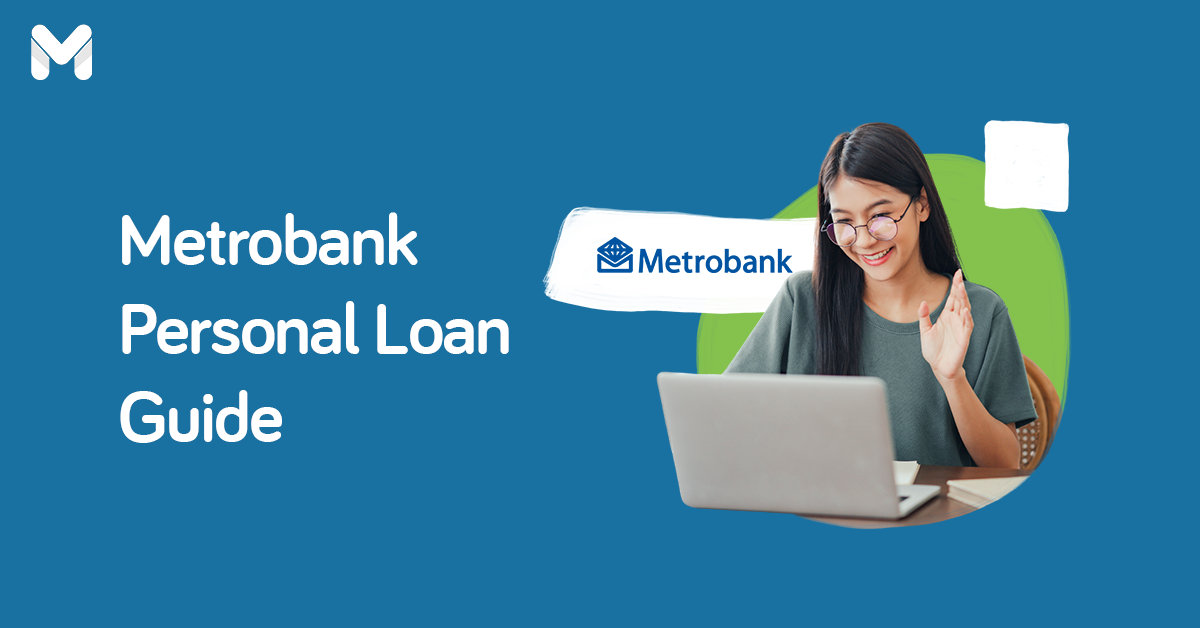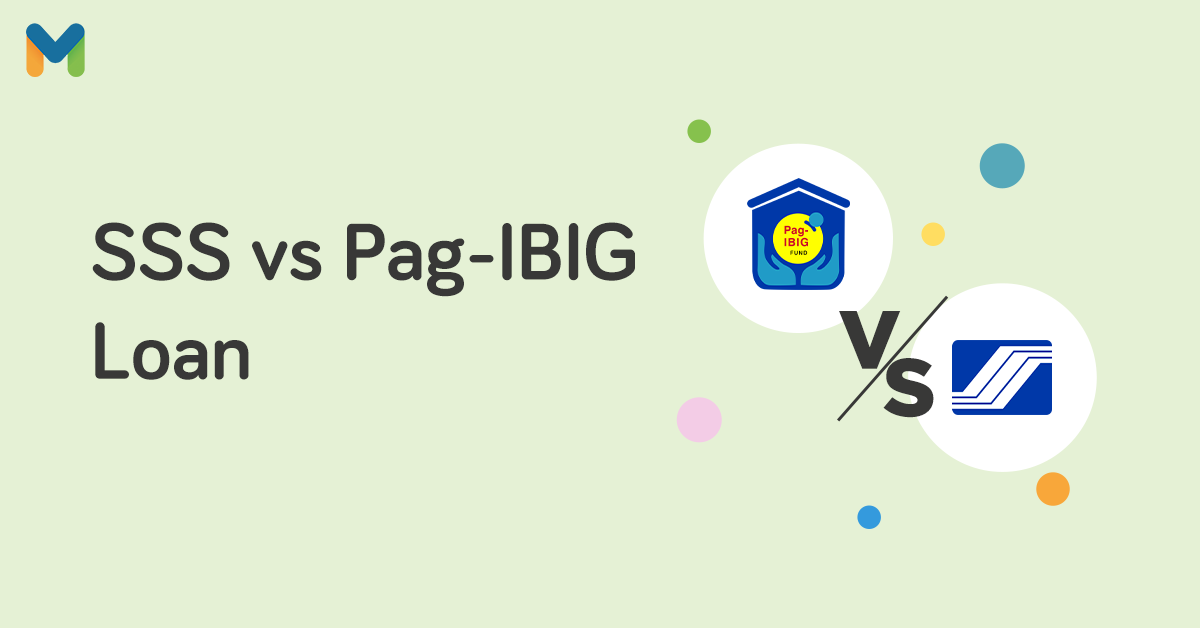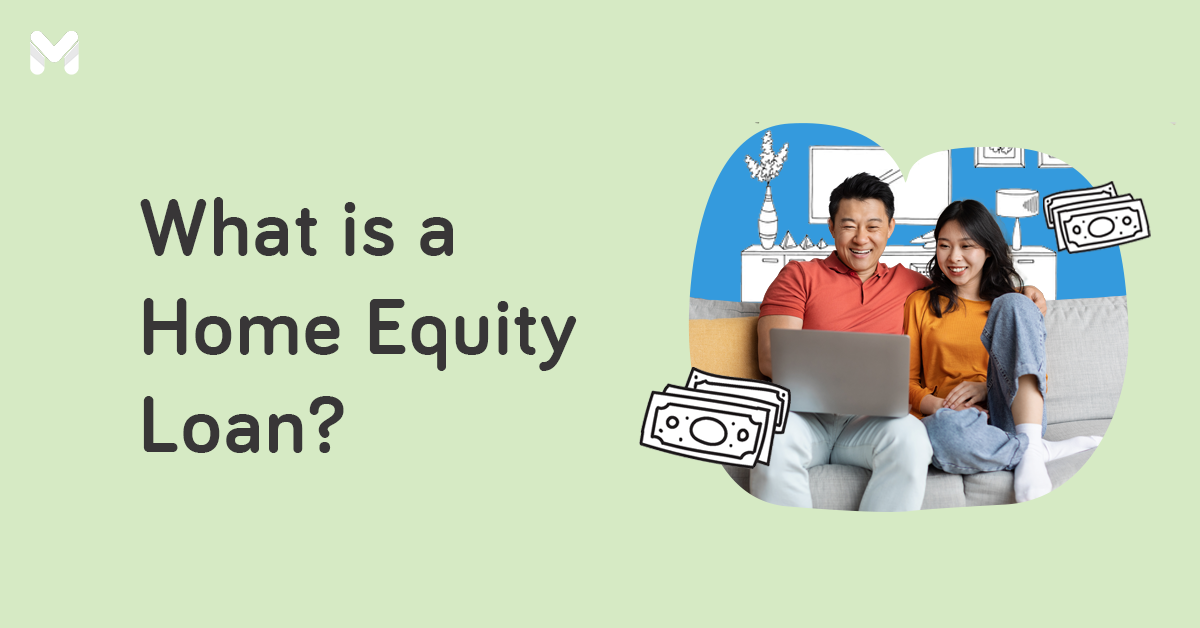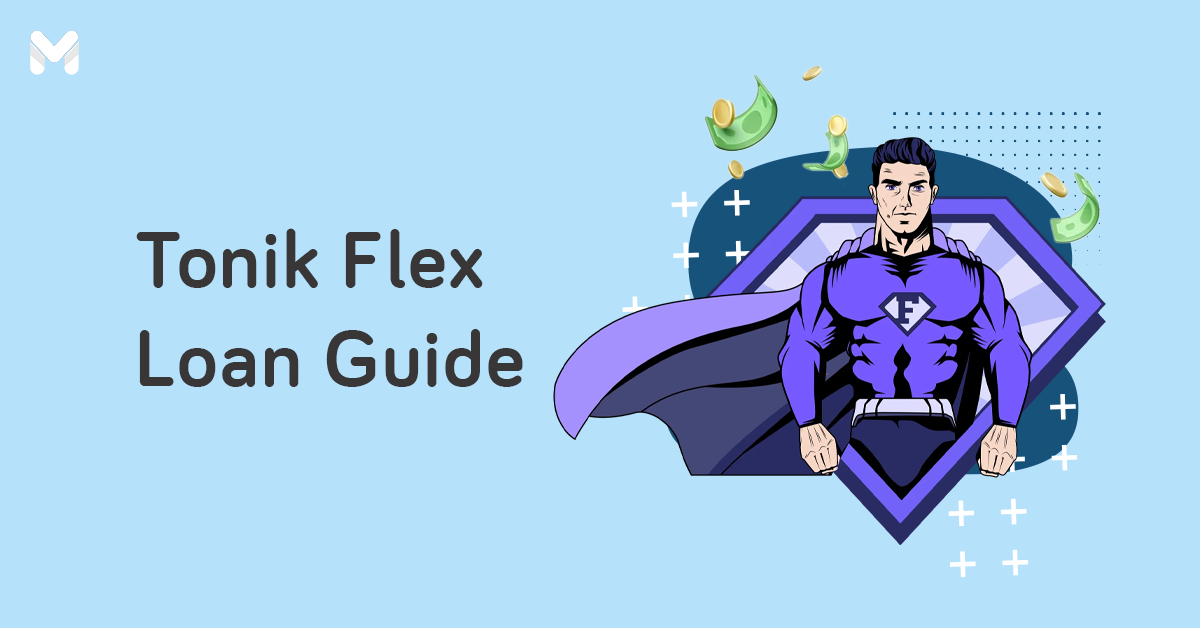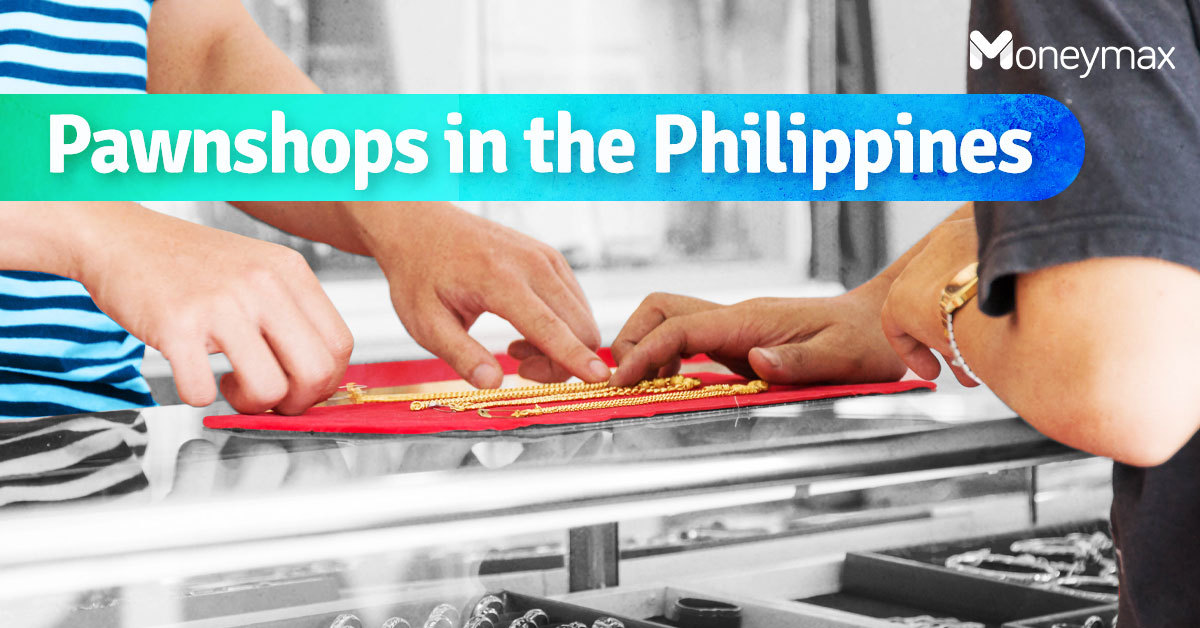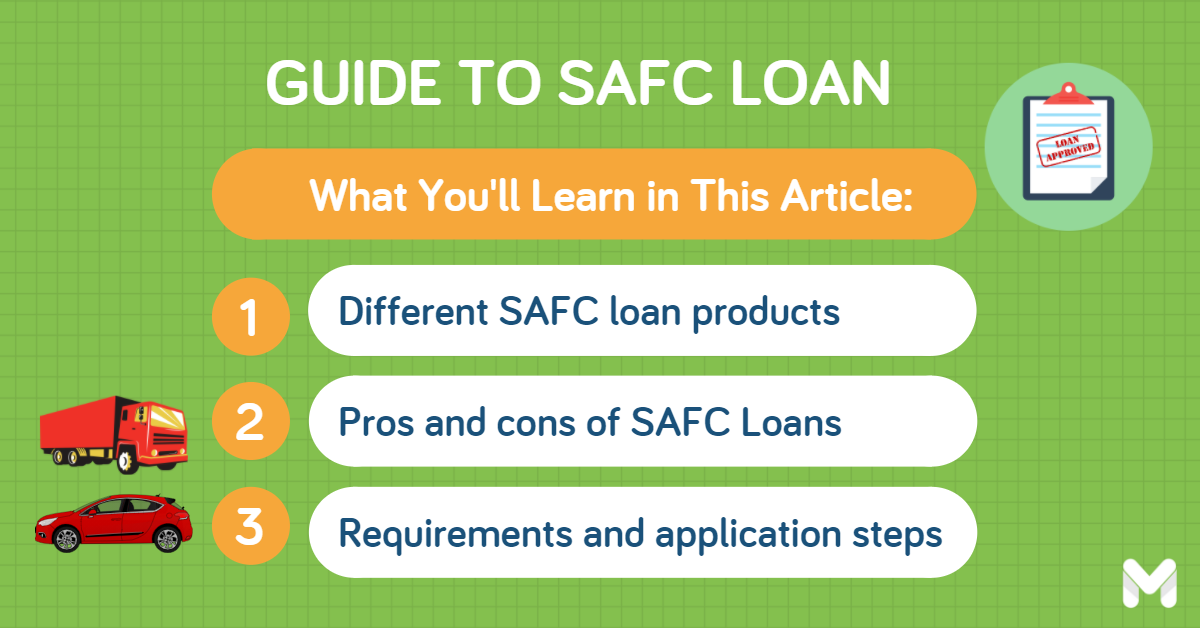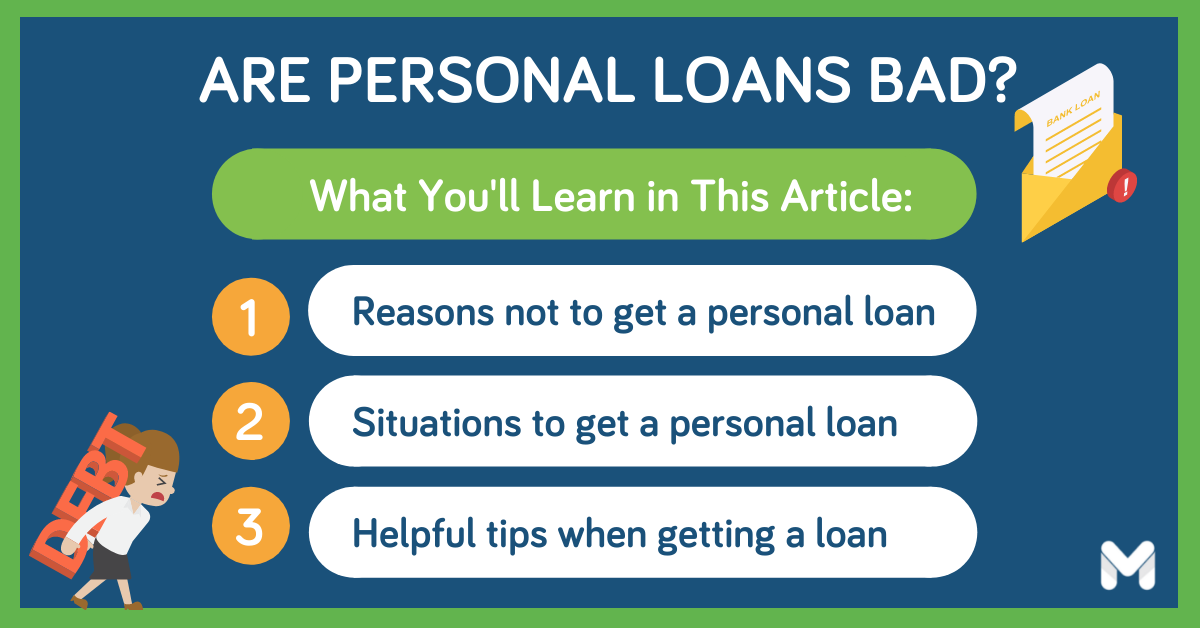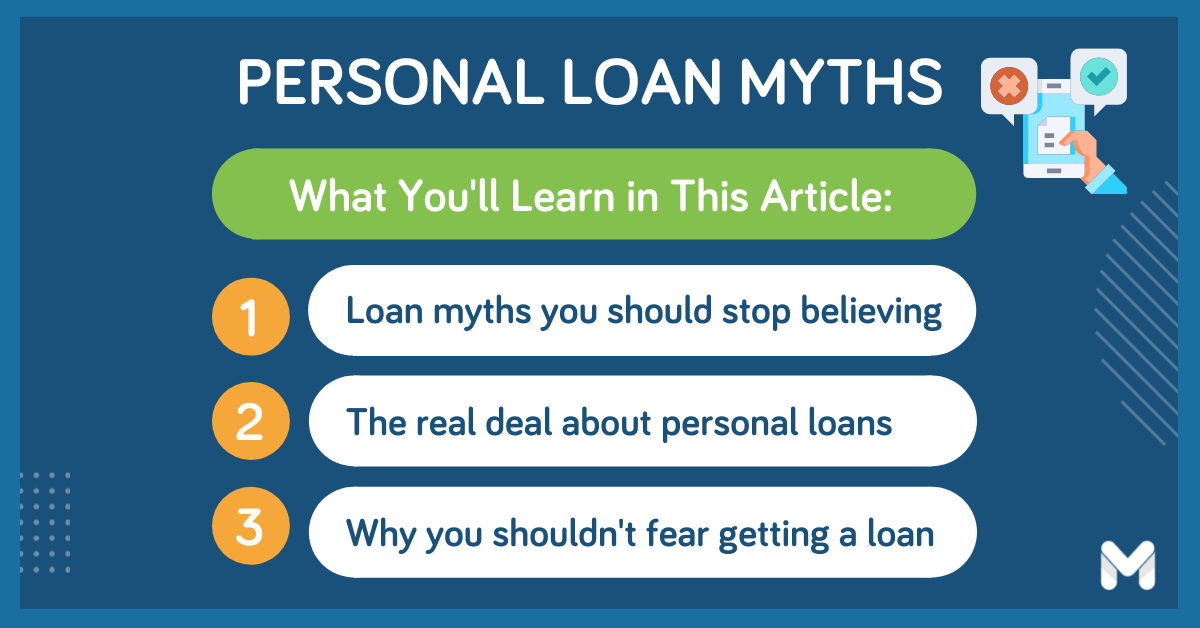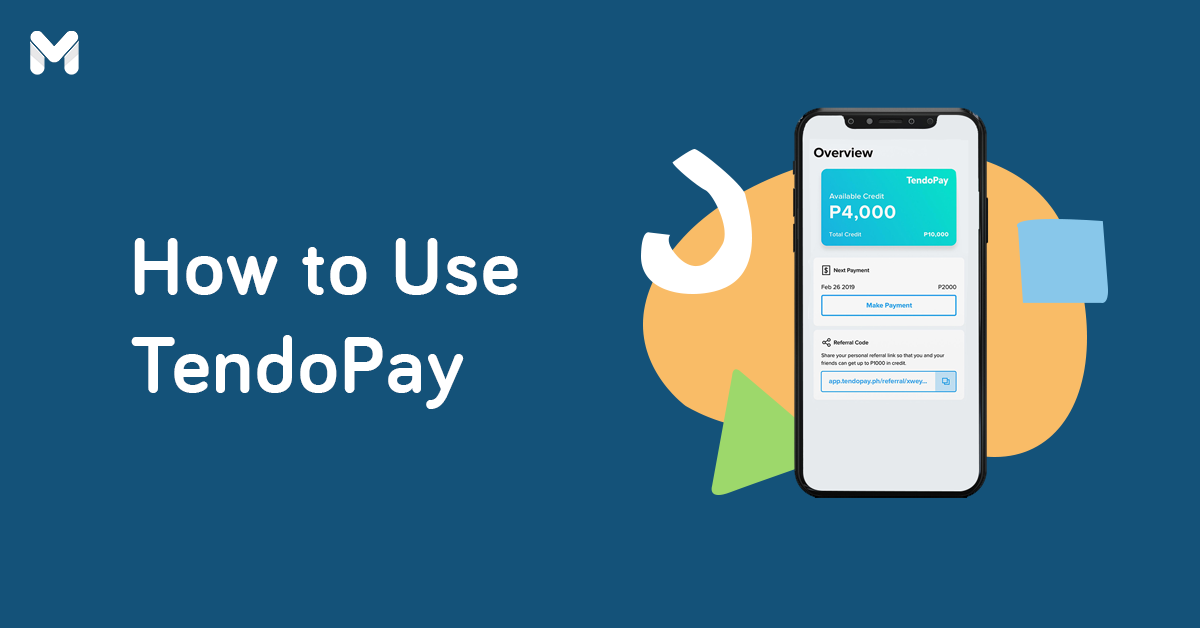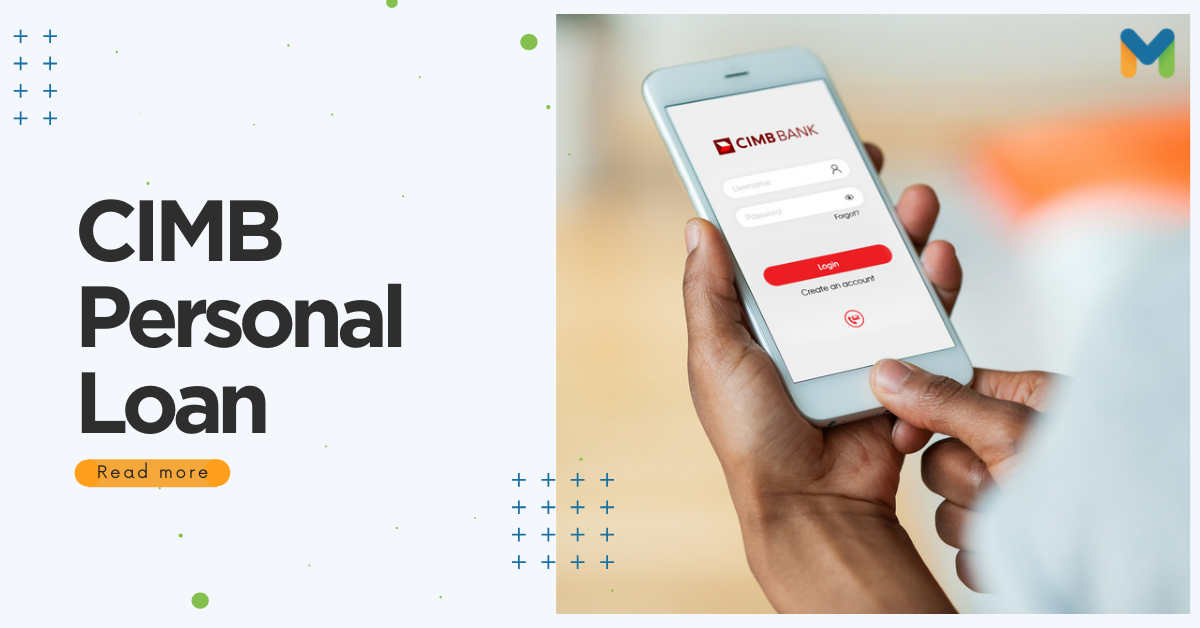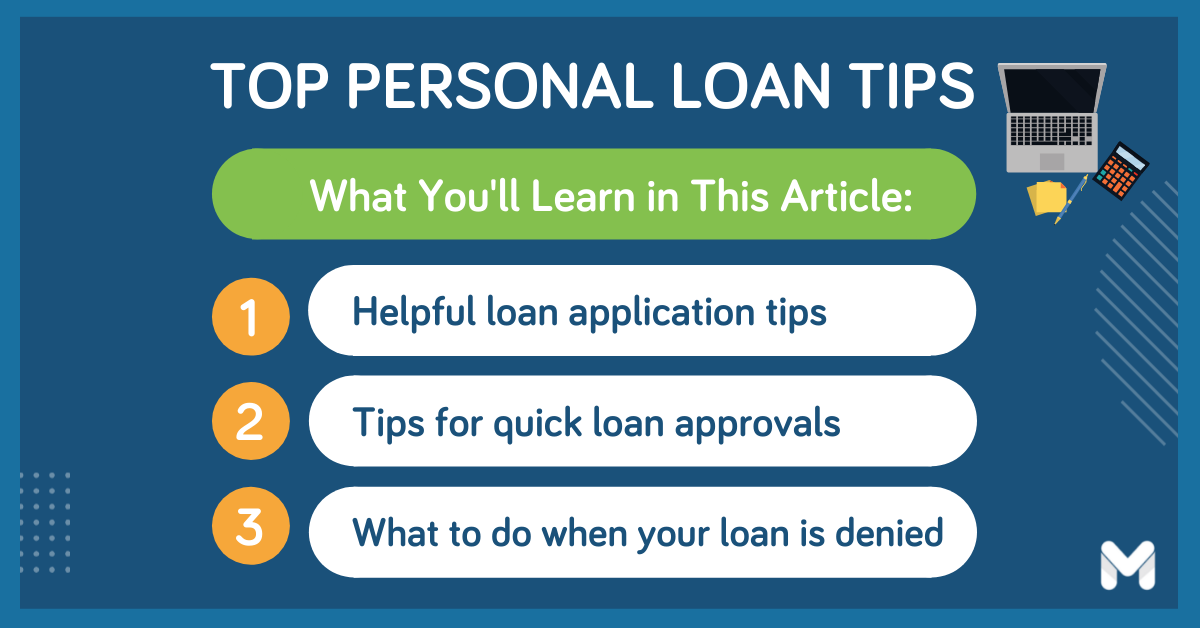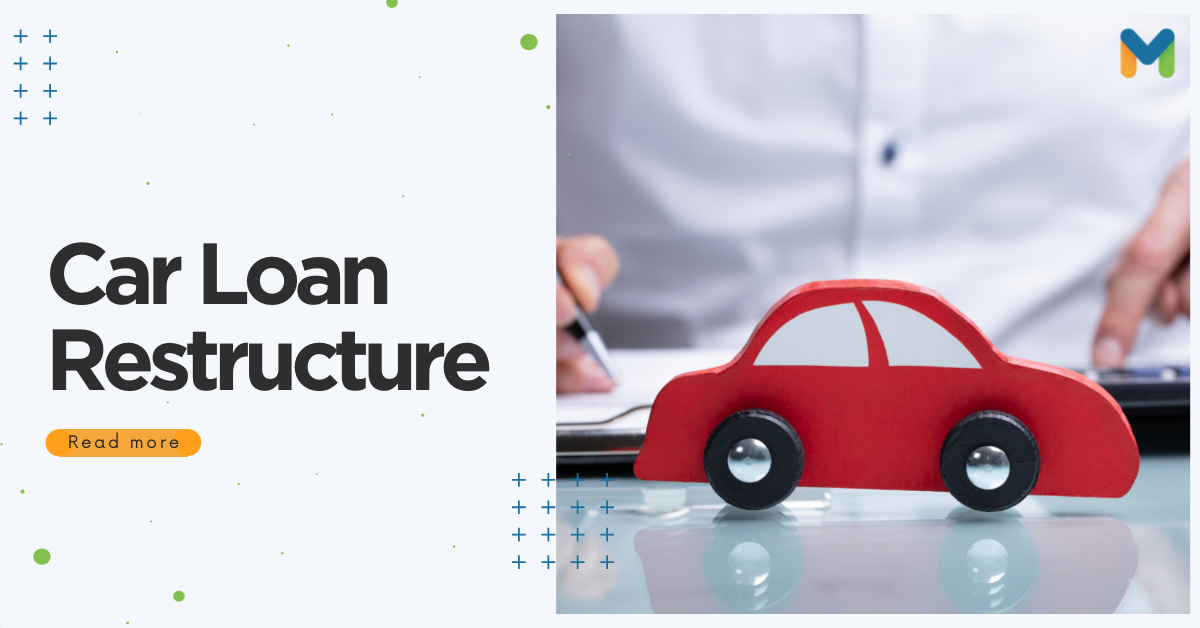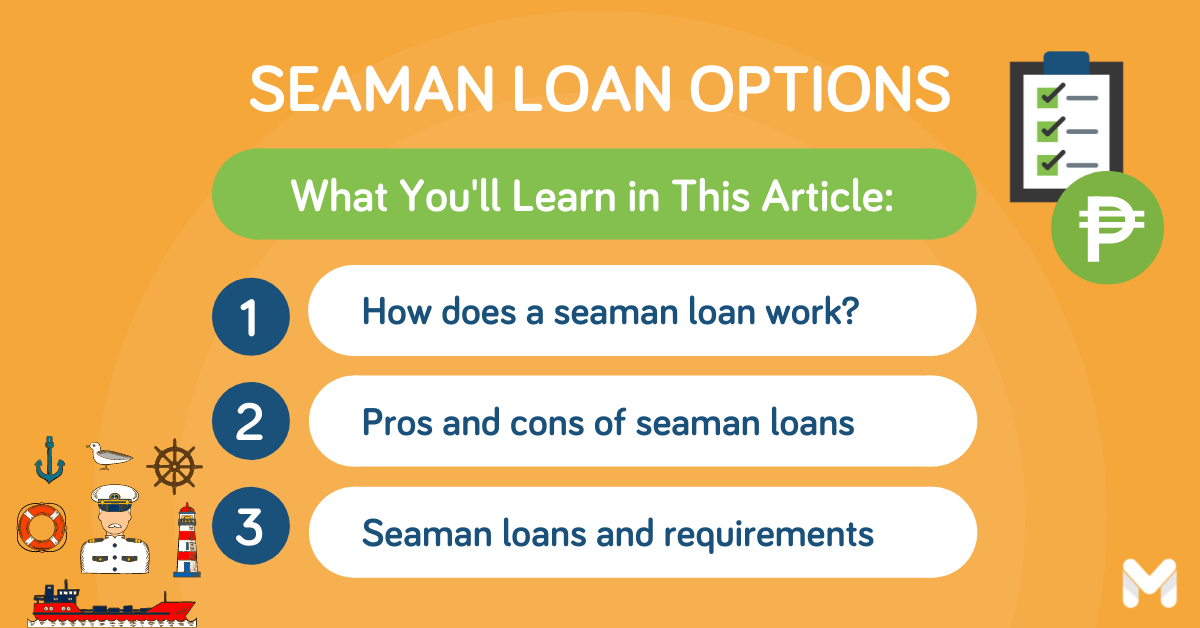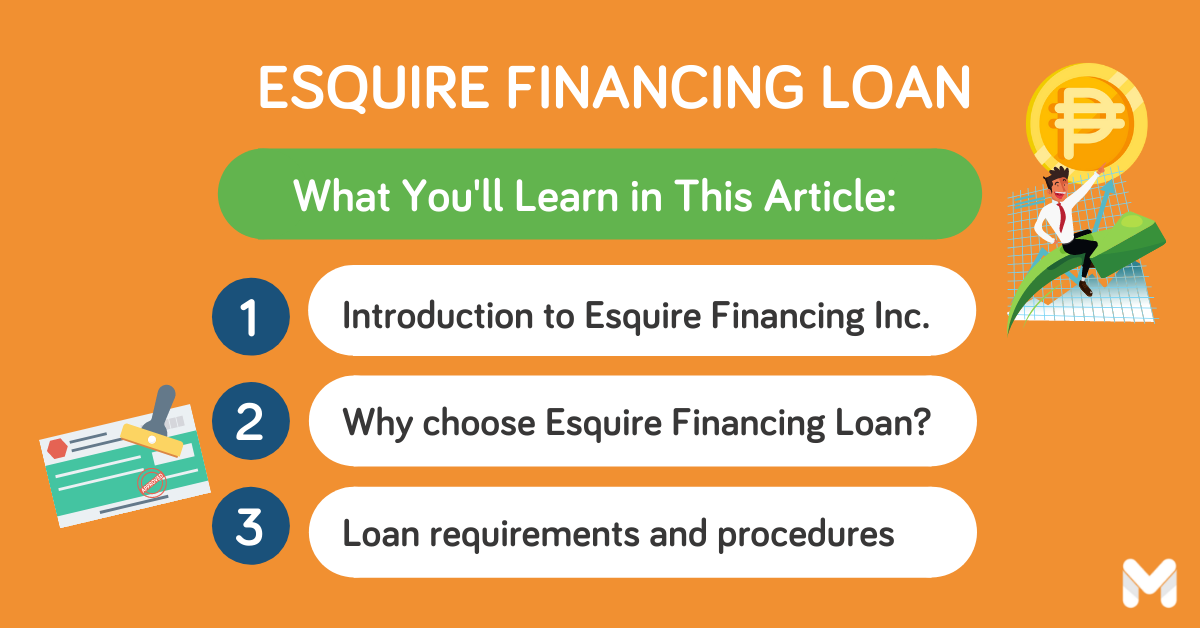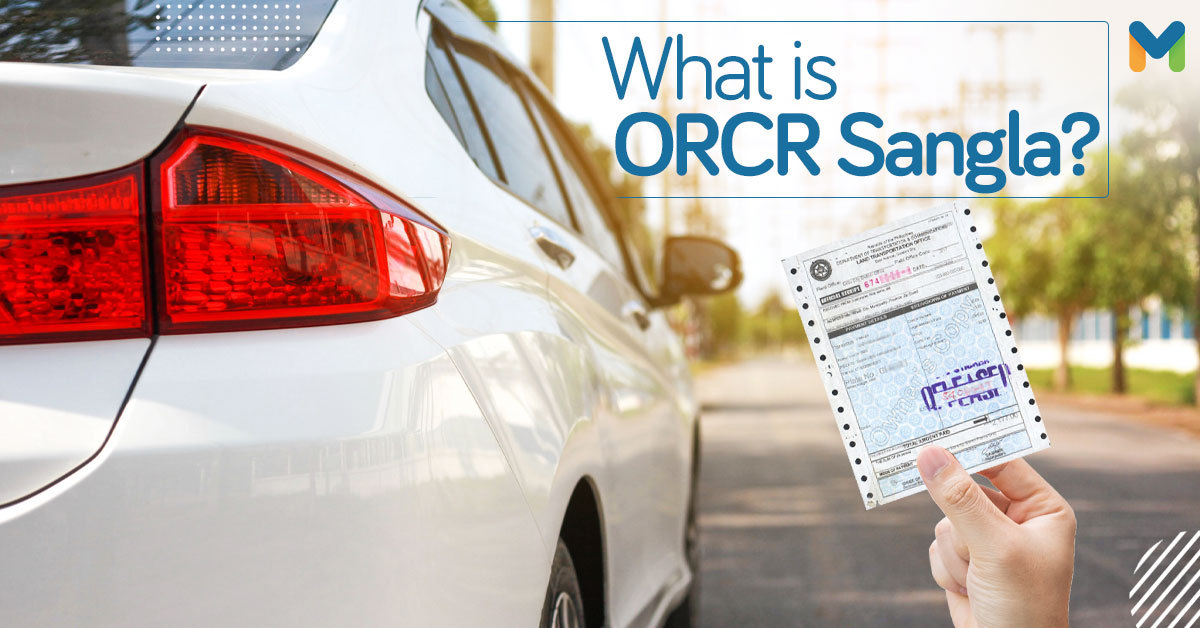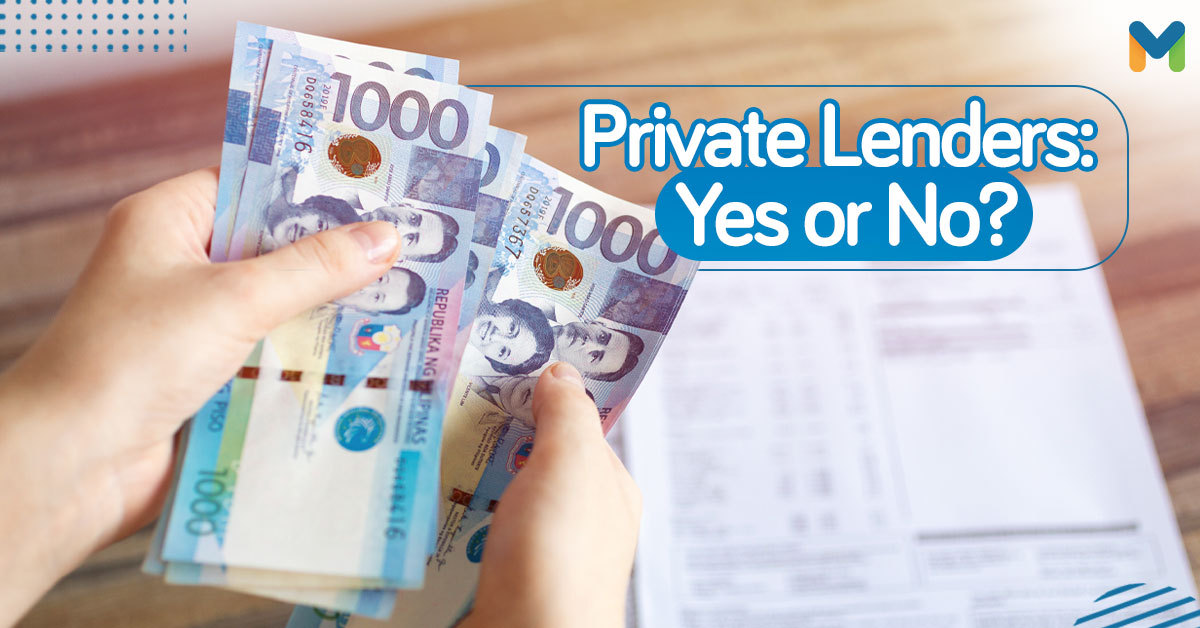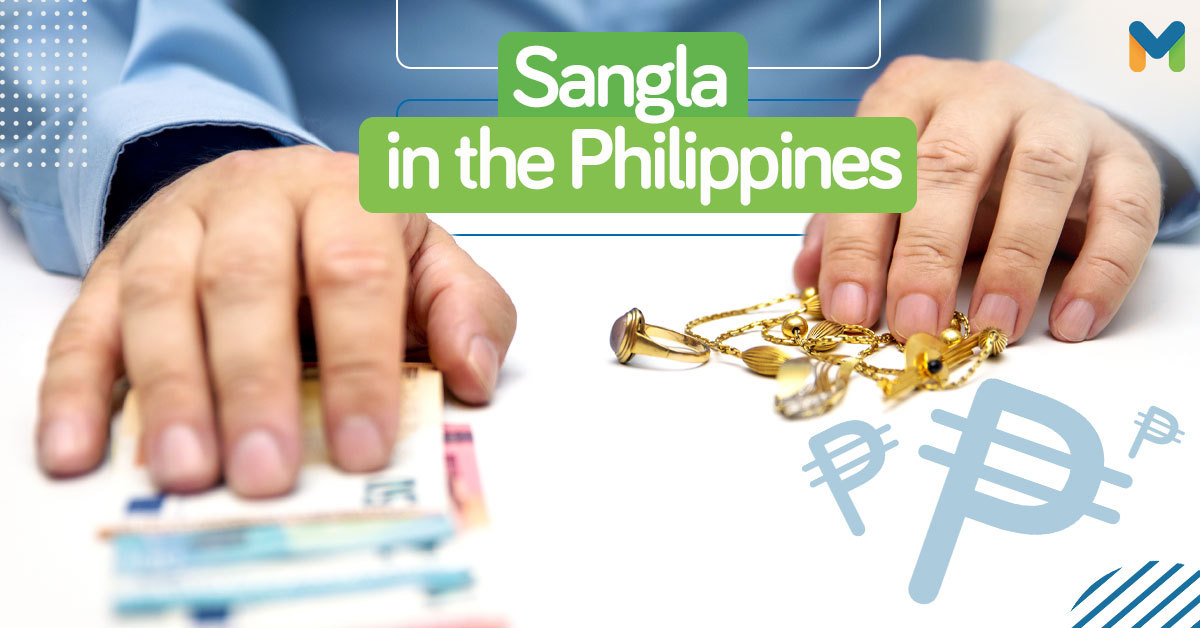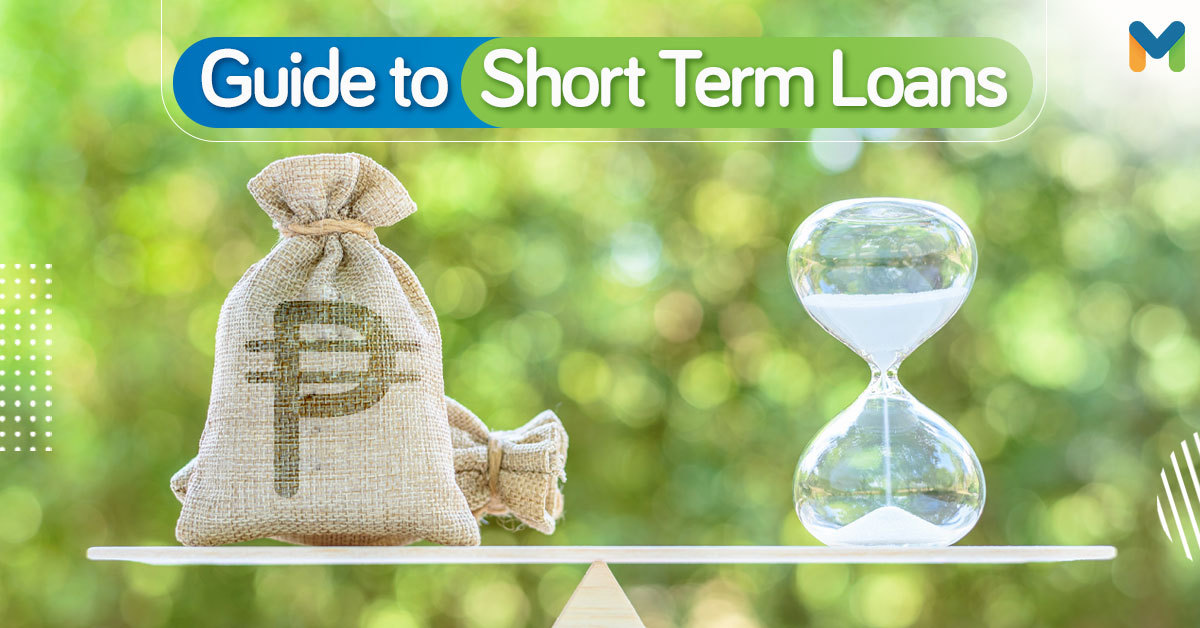Loans
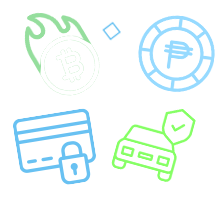
Popular articles
All articles
SSS Calamity Loan for 2024: Requirements and How to Apply
Last updated
Jul 30, 2024
Fund Your Big Dreams: How to Apply for a UnionBank Personal Loan
Last updated
Jul 24, 2024
Borrower Beware: Loan Scams in the Philippines to Avoid
Last updated
Jul 15, 2024
How to Get an Emergency Loan in the Philippines ASAP
Last updated
Jul 2, 2024
Study Now, Pay Later: 14 Student Loans in the Philippines
Last updated
Jun 27, 2024
Loan Terminology Glossary: Words to Know Before You Sign That Contract
Last updated
Jun 18, 2024
Money in as Fast as a Few Minutes: 21 Best Quick Cash Loans in 2024
Last updated
Jun 11, 2024
How to Settle Unpaid Loans With Debt Consolidation in the Philippines
Last updated
Jun 5, 2024
Fully Paid Off Your Car Loan? Here's What to do Next
Last updated
Jun 3, 2024
19 Low-Interest Personal Loans if You Need a Financial Boost
Last updated
May 30, 2024
Poor Credit History? 20 Bad Credit Loans in the Philippines
Last updated
May 28, 2024
Own Your Dream Car: 15 Best Banks for a Car Loan in the Philippines
Last updated
May 24, 2024
How to Refinance a Car Loan to Get Better Loan Terms
Last updated
May 21, 2024
How to Get a Personal Loan From BPI: Requirements and Process
Last updated
May 20, 2024
Safe and Legit: 26 Online Loans in the Philippines
Last updated
May 14, 2024
16 Loans With Easy Application and Approval in the Philippines
Last updated
May 10, 2024
Car Loan Process: How Does an Auto Loan Work in the Philippines?
Last updated
May 9, 2024
Need Financial Aid? Check Out 7 Types of Loans in the Philippines
Last updated
Apr 30, 2024
8 Tips for Responsible Borrowing: How to Manage a Personal Loan
Last updated
Apr 26, 2024
Should You Finance Your Trip with a Personal Loan? What to Know First
Last updated
Apr 23, 2024
6 Best Ways to Borrow Money for Different Needs
Last updated
Apr 12, 2024
How Many Concurrent Personal Loans Can You Have?
Last updated
Apr 1, 2024
What to Do When You're Threatened by Online Lenders? SLAP!
Last updated
Mar 21, 2024
Borrow Easily: How to Get Cash Loans Without a Bank Account
Last updated
Mar 19, 2024
Tonik Loan Application: Features, Requirements, and More
Last updated
Mar 18, 2024
How to Get Approved for a Business Loan in the Philippines
Last updated
Mar 15, 2024
What Happens to Unpaid Debt in Case of Death?
Last updated
Mar 12, 2024
Secured Loan vs. Unsecured Loan: Which One Best Fits Your Needs?
Last updated
Mar 5, 2024
Home Credit Cash Loan: How it Works and How to Apply
Last updated
Feb 26, 2024
List of Loan Purposes: 13 Best Reasons to Get a Personal Loan
Last updated
Feb 22, 2024
A Beginner’s Guide to Interest Rates and How They Work
Last updated
Feb 21, 2024
How Personal Loans Can Hurt or Improve Your Credit Score
Last updated
Feb 21, 2024
To Borrow or Not: Is Getting a Personal Loan Worth It?
Last updated
Feb 15, 2024
Predatory Lending: What Are Loan Sharks and How to Avoid Them?
Last updated
Feb 6, 2024
Need Funds? Here's Why You Need to Consider the Maya Personal Loan
Last updated
Jan 29, 2024
How to Apply for an SSS Salary Loan: A Step-by-Step Guide
Last updated
Jan 9, 2024
Pag-IBIG Housing Loan Tips: How to Process Your Application
Last updated
Jan 8, 2024
For Borrowers and Investors: A Peer-to-Peer Lending Guide
Last updated
Nov 29, 2023
Beginner's Guide to Atome Philippines: A New Way to Buy Now, Pay Later
Last updated
Nov 22, 2023
Cash Mart Loan Review: Should You Borrow from this Online Lender?
Last updated
Oct 31, 2023
Should You Get a Travel Loan in the Philippines?
Last updated
Oct 27, 2023
Need Money in Minutes? Check Out This Moneycat Loan Review First
Last updated
Oct 10, 2023
Personal Loan Fees: How Much Does It Cost to Borrow Money?
Last updated
Sep 29, 2023
Asteria Lending Review: What to Know Before Applying for a Loan
Last updated
Sep 28, 2023
17 Best Buy Now, Pay Later Apps in the Philippines for Easy Shopping
Last updated
Sep 22, 2023
Ride On: Motorcycle Loans in the Philippines and How to Apply for One
Last updated
Sep 21, 2023
Transform Your House into Your Dream Home: Best Home Improvement Loans
Last updated
Sep 20, 2023
Where to Borrow Money with No Collateral: 12 Best Unsecured Loans
Last updated
Sep 13, 2023
UNOBank Loan Review: Can This Digital Bank Meet Your Cash Needs?
Last updated
Sep 12, 2023
Lazada Loan Review: Should You Shop Online Using This Loan?
Last updated
Aug 23, 2023
Finbro Loan Review: Things to Know Before You Borrow Money
Last updated
Aug 17, 2023
CTBC Personal Loan Online Application: How to Get a Salary Stretch Loan
Last updated
Aug 16, 2023
Credit Investigation Questionnaire: How to Prepare for a Loan Application
Last updated
Aug 15, 2023
How to Pay for College Tuition with the SSS Educational Loan
Last updated
Aug 14, 2023
Affected by the Recent Typhoons? Check Out the Pag-IBIG Calamity Loan
Last updated
Aug 8, 2023
Asialink Loan Review: Read This Before You Submit Your Application
Last updated
Jul 26, 2023
Digido Loan Review: How Reliable is This Online Lending Platform?
Last updated
Jul 5, 2023
GLoan, GGives, and GCredit: How to Avail of a Loan in GCash
Last updated
Jul 3, 2023
Loan Application via an App? Meet Zuki by SB Finance
Last updated
Jun 29, 2023
RFC Loan Guide: How to Apply for a Loan from Radiowealth Finance
Last updated
Jun 21, 2023
Online Loans Pilipinas Review: Pros, Cons, and How to Apply
Last updated
Jun 16, 2023
Heads Up, Ka-Negosyo: Here’s How to Get a BPI Business Loan
Last updated
May 31, 2023
What is Loan Default and How Will It Affect Your Finances?
Last updated
May 25, 2023
Need a Small Business Loan? DTI Offers Several Options
Last updated
May 25, 2023
Bye, Petsa de Peligro: Here are 15 Salary Loans to Tide You Over
Last updated
May 23, 2023
In-House vs Bank vs Pag-IBIG: Which is the Best Home Financing Option?
Last updated
May 23, 2023
UnaCash Loan Review: Is It Safe to Borrow Money from This Lending App?
Last updated
May 22, 2023
Ready to Be a Homeowner? Check Out This SSS Housing Loan Guide
Last updated
May 19, 2023
Fund Your Goals: HSBC Personal Loan Application Guide
Last updated
May 19, 2023
Getting Your Dream Home with a BPI Housing Loan? Here’s What to Know
Last updated
May 18, 2023
Top 7 Personal Loan Rejection Reasons and How to Avoid Them
Last updated
May 17, 2023
Personal Loan vs Car Loan: Which is Better for Financing a Car?
Last updated
May 16, 2023
How to Compute Loan Interest and Monthly Amortization in the Philippines
Last updated
May 11, 2023
Pag-IBIG Home Equity Appreciation Loan: Everything to Know
Last updated
May 5, 2023
10 Best Personal Loans in the Philippines for Different Cash Needs
Last updated
Apr 25, 2023
ACOM Loan Guide: Application Requirements and Process
Last updated
Mar 29, 2023
JuanHand Loan App Review: Should You Borrow Money from JuanHand?
Last updated
Mar 28, 2023
Cashalo Loan Application: Get a Loan to Finance Your Needs
Last updated
Mar 22, 2023
How to Start Your Metrobank Personal Loan Application
Last updated
Mar 21, 2023
Home Loans in the Philippines: What Future Homeowners Must Know
Last updated
Mar 9, 2023
No Upfront Fees, No Worries: Security Bank Home Loan All-In Financing
Last updated
Feb 28, 2023
SSS Salary Loan vs Pag-IBIG Multi-Purpose Loan: Which is Better?
Last updated
Feb 22, 2023
Easy Steps for an Online Security Bank Home Loan Application
Last updated
Feb 16, 2023
Home Equity Loan: What to Use It For and How to Choose One
Last updated
Feb 9, 2023
Borrowing Through Tala App? Read This Tala Loan Application Guide
Last updated
Feb 8, 2023
How to Borrow Up to ₱2.5 Million Online with Tonik Big Loan
Last updated
Feb 3, 2023
Looking for a Short-Term Loan? Try Pag-IBIG’s Multi-Purpose Loan
Last updated
Feb 2, 2023
Adulting 101: Pros of Having Your Own Home
Last updated
Jan 26, 2023
An Entrepreneur’s Comprehensive Guide to Startup Business Loans
Last updated
Jan 20, 2023
Need Cash ASAP? Check Out the Tonik Flex Loan
Last updated
Jan 20, 2023
Blend PH Loan Review: Everything to Know About This Online Personal Loan
Last updated
Sep 23, 2022
Fund Your Next Big Purchase with the CBS Easi-Funds Personal Loan
Last updated
Jul 27, 2022
Make Your Dream Wedding Come True with a Personal Loan for a Wedding
Last updated
Jun 23, 2022
What You Need to Know for a Successful Housing Loan Application
Last updated
Jun 17, 2022
5 Reasons Why Your Car Loan Gets Rejected
Last updated
Jun 17, 2022
List of Pawnshops in the Philippines
Last updated
Jun 14, 2022
SAFC Loan Guide: What to Know About South Asialink Finance Corp’s Loan Products
Last updated
Jun 10, 2022
Are Personal Loans Bad? Here’s When You Should Not Get One
Last updated
Jun 8, 2022
How to Find the Best Housing Loan : A Step-by-Step Guide
Last updated
Jun 1, 2022
Mortgage Brokering: What is It and How Can It Help Me Buy a Home?
Last updated
Jun 1, 2022
3 Easy Steps to Apply for a Housing Loan with Nook
Last updated
Jun 1, 2022
How Home Loan Refinancing Can Help You Save Money
Last updated
Jun 1, 2022
Looking for the Best Housing Loan in the Philippines? Check Out These 10 Banks
Last updated
Jun 1, 2022
How Mortgage Brokers Can Help You Secure a Home Loan
Last updated
Jun 1, 2022
Bank Housing Loan Approval Tips to Help You Get That Dream Home
Last updated
Jun 1, 2022
12 Personal Loan Myths Debunked: Know the Real Deal Before Borrowing
Last updated
May 20, 2022
Buy Now, Pay Later: How to Use TendoPay for Your Online Purchases
Last updated
May 18, 2022
How to Apply for a CIMB Personal Loan (It’s Easy, Quick, and Convenient!)
Last updated
May 17, 2022
Applying for a Personal Loan? Check Out This PSBank Flexi Loan Guide
Last updated
Apr 22, 2022
12 Personal Loan Tips to Raise Your Chance of Getting Approved
Last updated
Apr 19, 2022
Car Loan Restructure in the Philippines: Why You Should Apply for One and How to Do It
Last updated
Apr 11, 2022
UnionBank Auto Loans
Last updated
Mar 23, 2022
Things to Avoid When Applying for a Home Loan
Last updated
Jan 12, 2022
Seaman Loan: Important Things to Know + 6 Loan Options to Consider
Last updated
Nov 9, 2021
Starting a Business? Here’s Your Guide to Esquire Financing Business Loan
Last updated
Oct 28, 2021
Why and How to Get a Security Bank Personal Loan in the Philippines
Last updated
Oct 28, 2021
OR/CR Sangla Guide: All About Car Pawning in the Philippines
Last updated
Oct 25, 2021
SB Finance Car4Cash Guide: How to Get a Loan Using Your Car’s OR/CR
Last updated
Oct 25, 2021
How to Get Quick Cash Through GDFI Car Title Pawning Loan
Last updated
Oct 25, 2021
How to Compare Personal Loan Rates: Know Which Loan is the Best for You
Last updated
Sep 22, 2021
Should I Borrow Money from Private Lenders?
Last updated
Sep 21, 2021
BillEase Loan: How to Shop Now, Pay Later and Get a Cash Loan Through BillEase
Last updated
Sep 15, 2021
Sangla in the Philippines: What You Must Know Before Pawning Valuables
Last updated
Jul 23, 2021
10 MSME Loans in the Philippines for Scaling Up Your Business
Last updated
Jul 23, 2021
Loan Options and Approval Tips for Freelancers in the Philippines
Last updated
Jul 23, 2021
OFW Loan Options in the Philippines for Every Kind of Need
Last updated
Mar 27, 2021
What You Need to Know About Short Term Loans in the Philippines
Last updated
Mar 1, 2021
How to Apply for a Car Loan
Last updated
May 31, 2016


OUR MISSION
We help you lead a healthier financial life.


